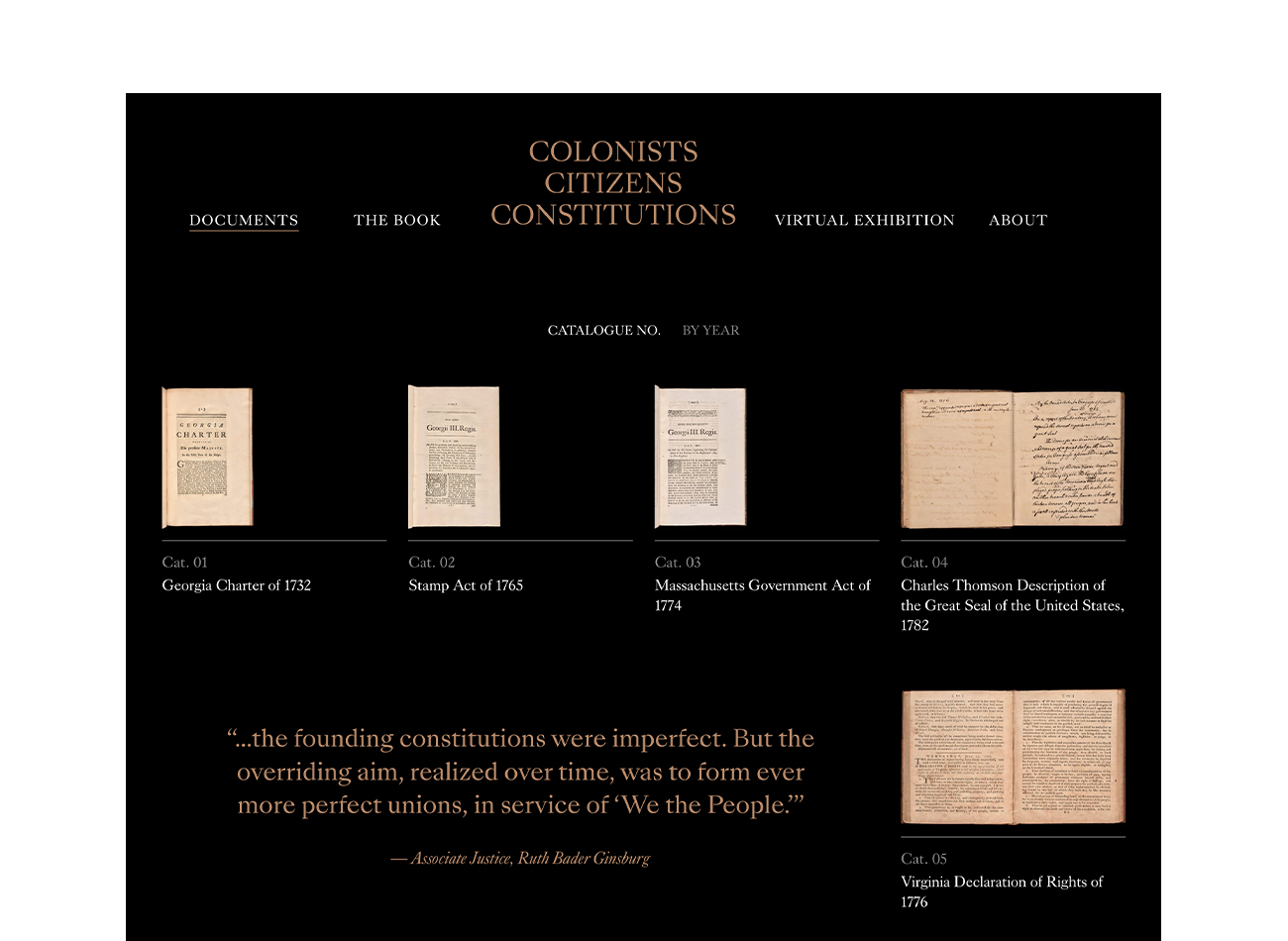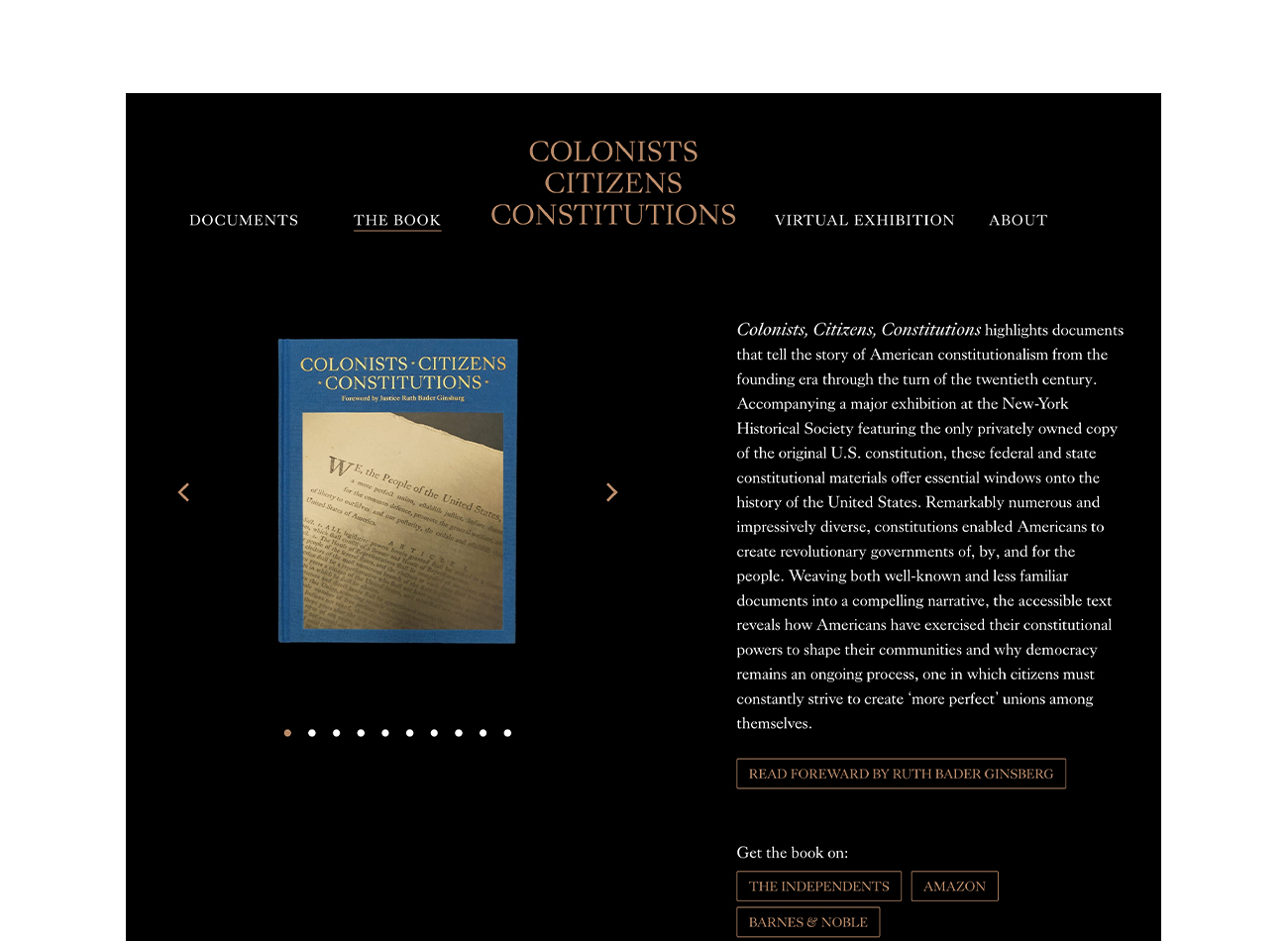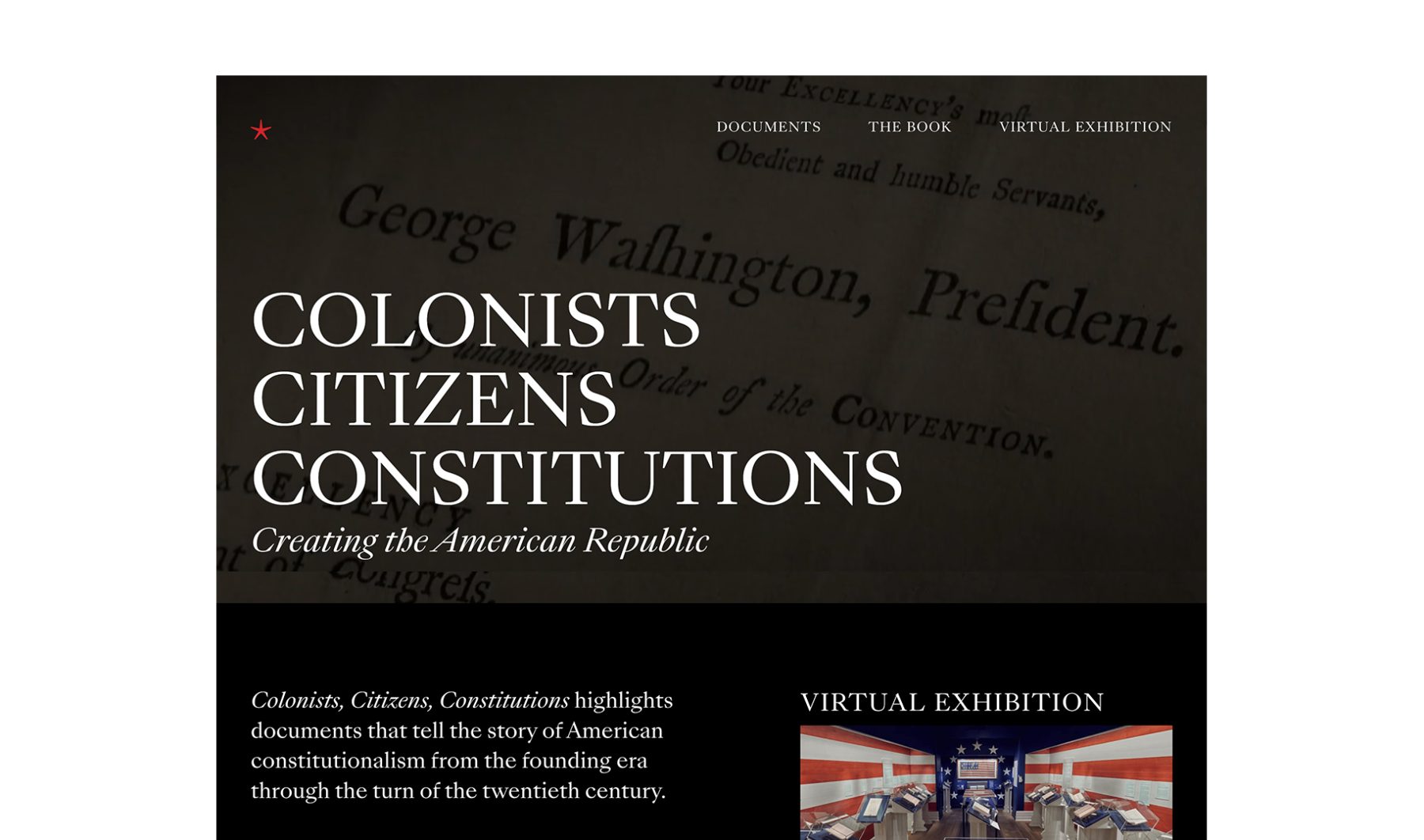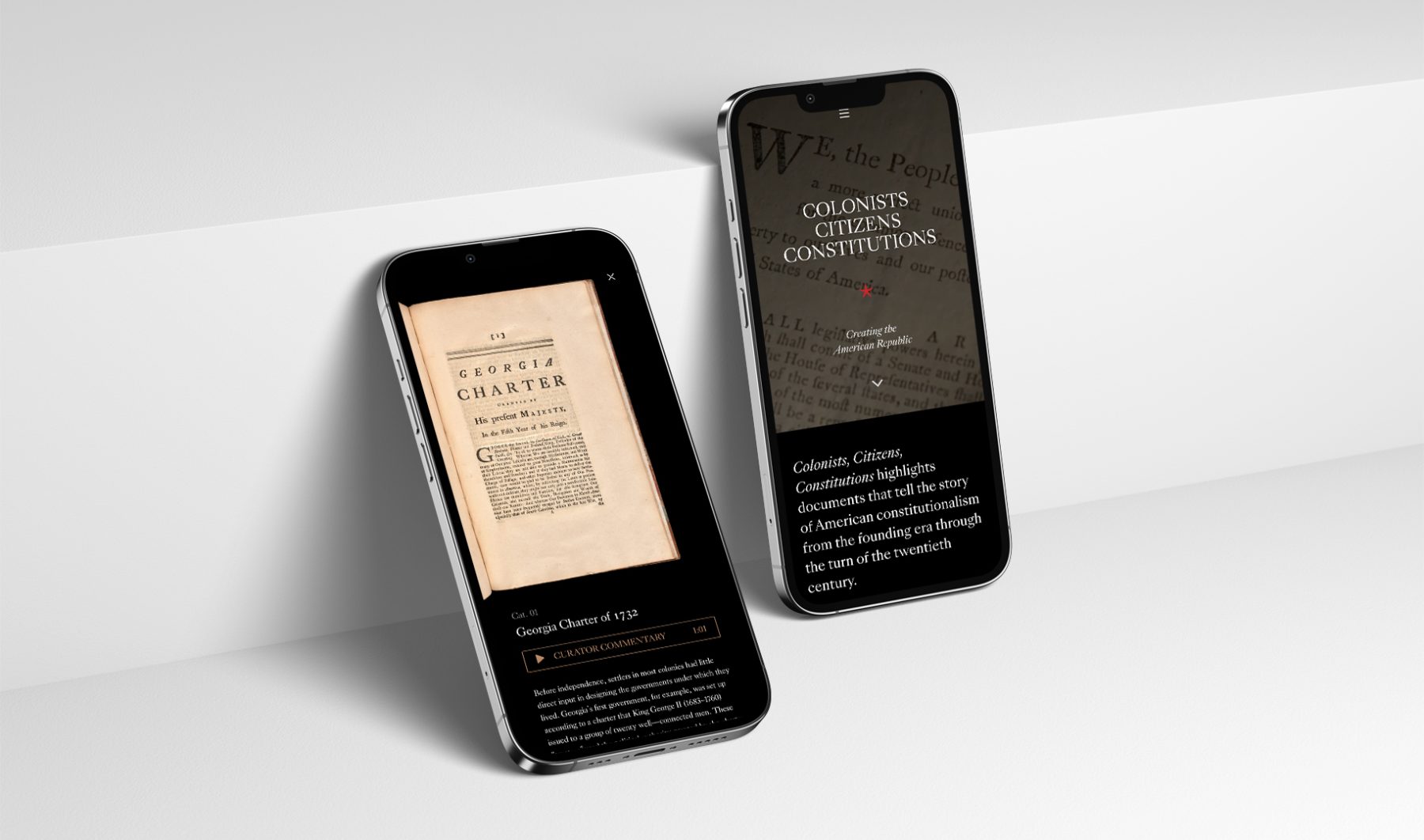Audio Reactive Type x Beatbox Installation
2025 TDC + ADC + One Club Holiday Party
To celebrate the 2025 Members Holiday Party for The One Club for Creativity, Type Directors Club (TDC), and Art Directors Club (ADC), we produced a one-of-a-kind live beatboxing performance paired with an audio-reactive typographic installation.
The performance featured SPIDERHORSE, the world-champion beatboxing duo of Chris Celiz and Gene Shinozaki, known for pushing the boundaries of vocal music through intricate rhythms, melody, and multi-instrumental sound. Over the past eight years, they have redefined what the human voice can do on stage.
Designed specifically for the event, the installation was a fully generative, audio-reactive system built in p5.js. All visuals were generated live—driven exclusively by the duo’s microphone inputs and rendered entirely through live variable fonts manipulated by code. No pre-made graphics were used; every form emerged in real time, making the installation as improvised and expressive as the performance itself.
All variable fonts were designed by WeType.co.
KUDOS Design Collaboratory
-
John Kudos
Creative Director -
Kiki Katahira
Producer & Creative Director -
Lakeisha Sharonina
Creative Coder -
James Marquette, Caitlin Yackley
Graphic Designer
SPIDERHORSE
-
Chris Celiz, Gene Shinozaki
Beatboxers
Lewis Latimer Interactives
Lewis Latimer House Museum
Capabilities
Focus Area
Client
Lewis Howard Latimer was the son of self-emancipated enslaved people, a self-taught draftsman, and major contributor to the invention of the lightbulb and the telephone. Some of his own inventions are the early air conditioning unit and the railroad car bathroom.
Growing up, Latimer faced many challenges due to racial discrimination prevalent at the time. He enlisted in the Union Navy in 1864 at the age of 16 and—with no access to formal education—taught himself mechanical drawing which eventually led him to become a chief draftsman, patent expert, and inventor.
The Lewis Latimer House Museum in Flushing, New York is the very same house that Latimer lived in from 1903 until his passing at the age of 80 in 1928. Threatened with demolition, the house was relocated from Holly Avenue in East Flushing to its present location in 1988. It is now a historic house museum owned by the New York City Department of Parks & Recreation, operated by the Lewis H. Latimer Fund, Inc., and is a member of the Historic House Trust.
We worked closely with Isometric, the lead exhibition designer, to produce four interactive exhibitions through a combination of digital and physical experiences that educate, entertain, and inspire—all rooted in Latimer’s legacy as an mold-breaking inventor of his time.
INVENTION MACHINE
Vertical screen displaying inventions Latimer patented, but never built. Oversized blueprints reimagined as 3D objects which brings the inventions to life.
TOGETHER WE RISE
An interactive “family portraits wall” of contributors and leaders integral to Latimer’s legacy. A bench in front of the projection wall holds a hand-crank allowing viewers to navigate to a particular profile by rotating and pressing a physical button.
POETRY MACHINE
A skeletal mechanical crank allowing visitors to rotate between panels of Latimer’s poetry. When cranked to the right position, the selected poetry plays audibly, allowing visitors to experience the poetry as an audio-visual sensory experience.
LATIMER BUZZ SELFIE APP
A selfie app that can be loaded directly on visitor’s smart phones using a QR code on the printed Latimer Buzz magazine. Through the app, everyone can take a fun selfie image as the cover of Latimer Buzz magazine, and actually print a physical sticker that can be affixed to the magazine as a keepsake item—a kid-friendly activity and souvenir from a memorable experience.
KUDOS Design Collaboratory
-
John Kudos
Creative Director -
Robert de Saint Phalle
3D Creative Director -
Jess Mackta
Project Manager -
Jamus Marquette
Lead Designer -
Fay Qiu, Owen Febiandi
Designer -
Imam Fadillah
3D Designer -
Chris Manlapid, Arif Widipratomo, Faris Han
Software Developer -
Ed Bear
Engineer -
Levy Murphy
Fabricator -
Electrosonic
A/V Consultant
Isometric
- Lead Exhibition Design
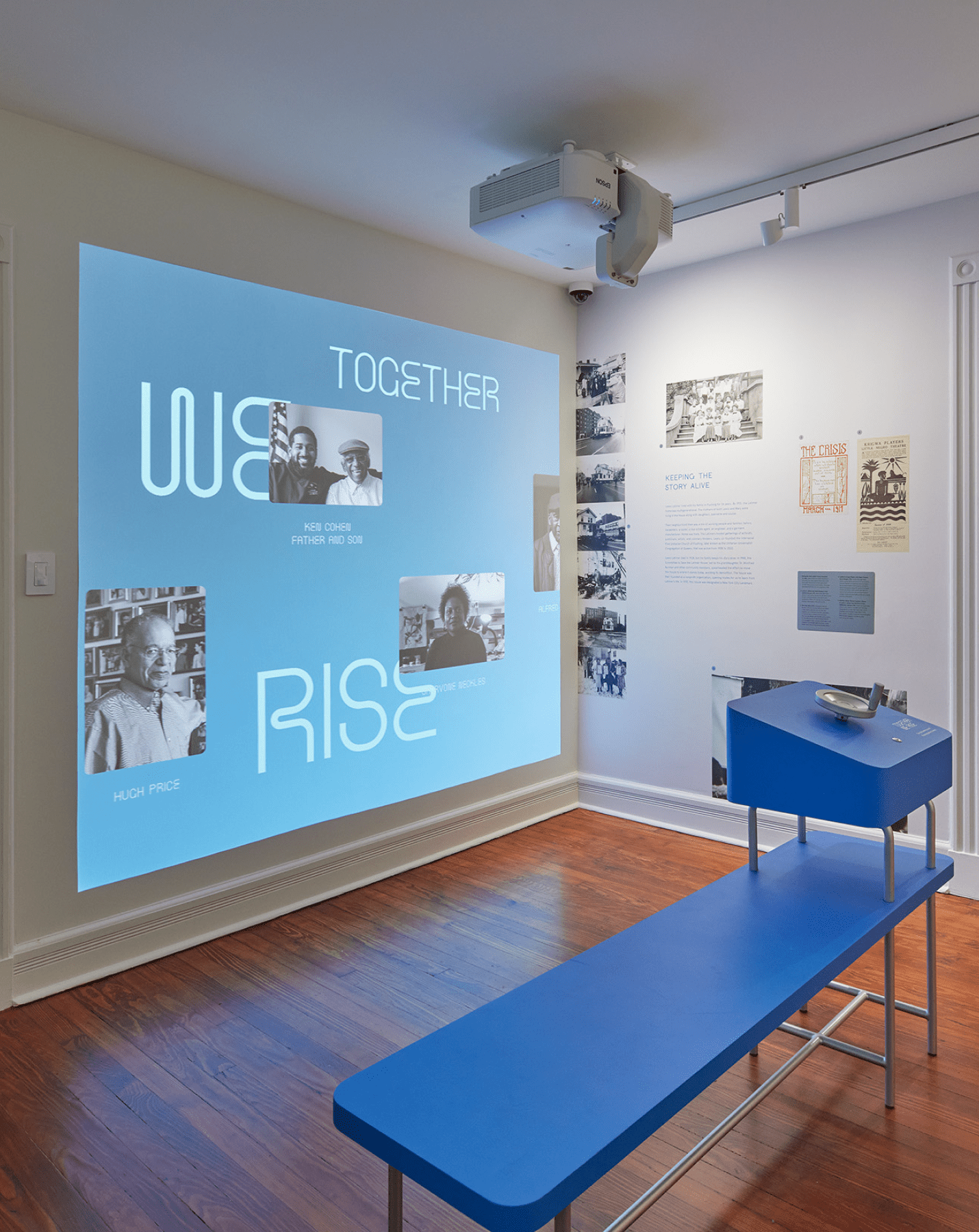
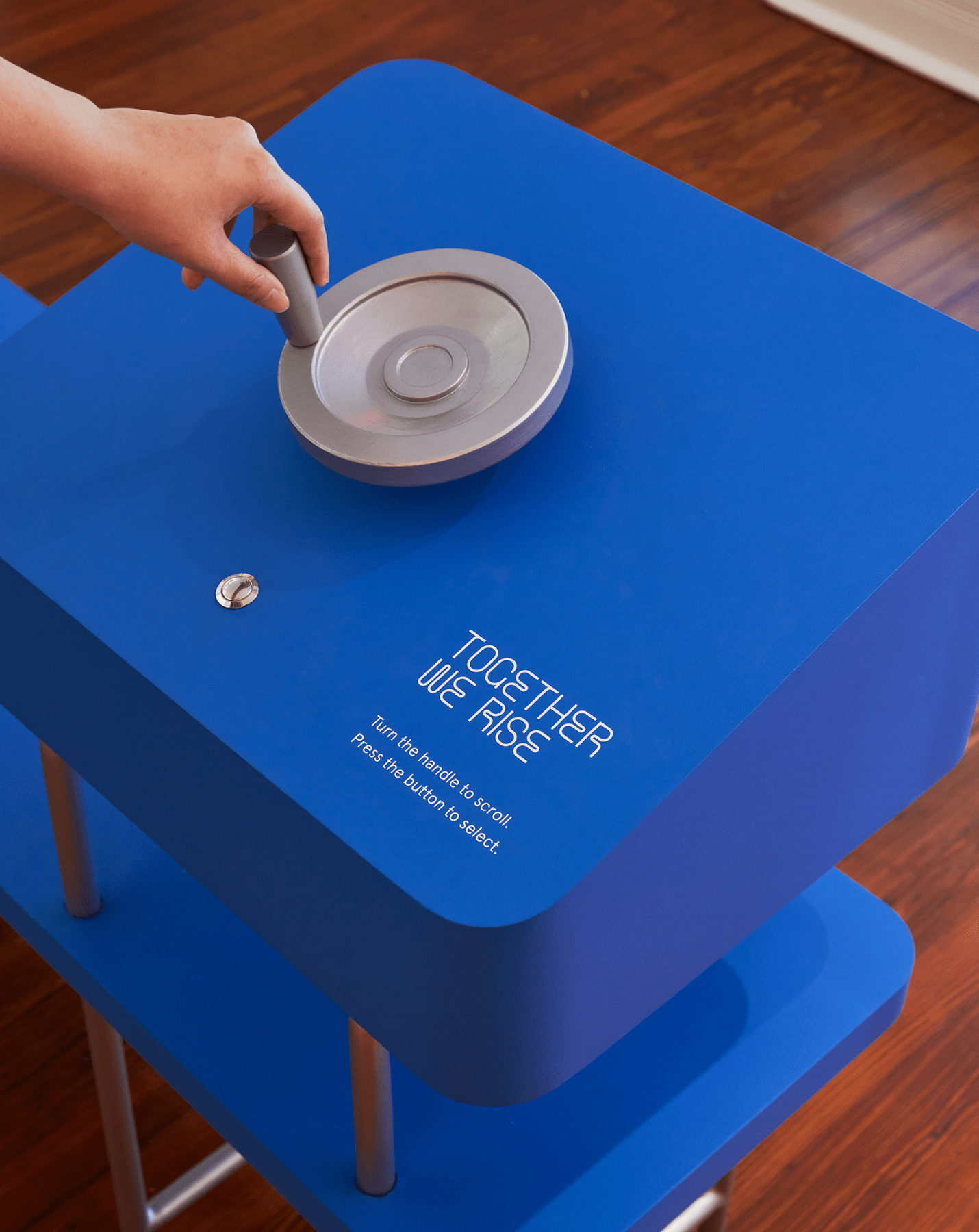
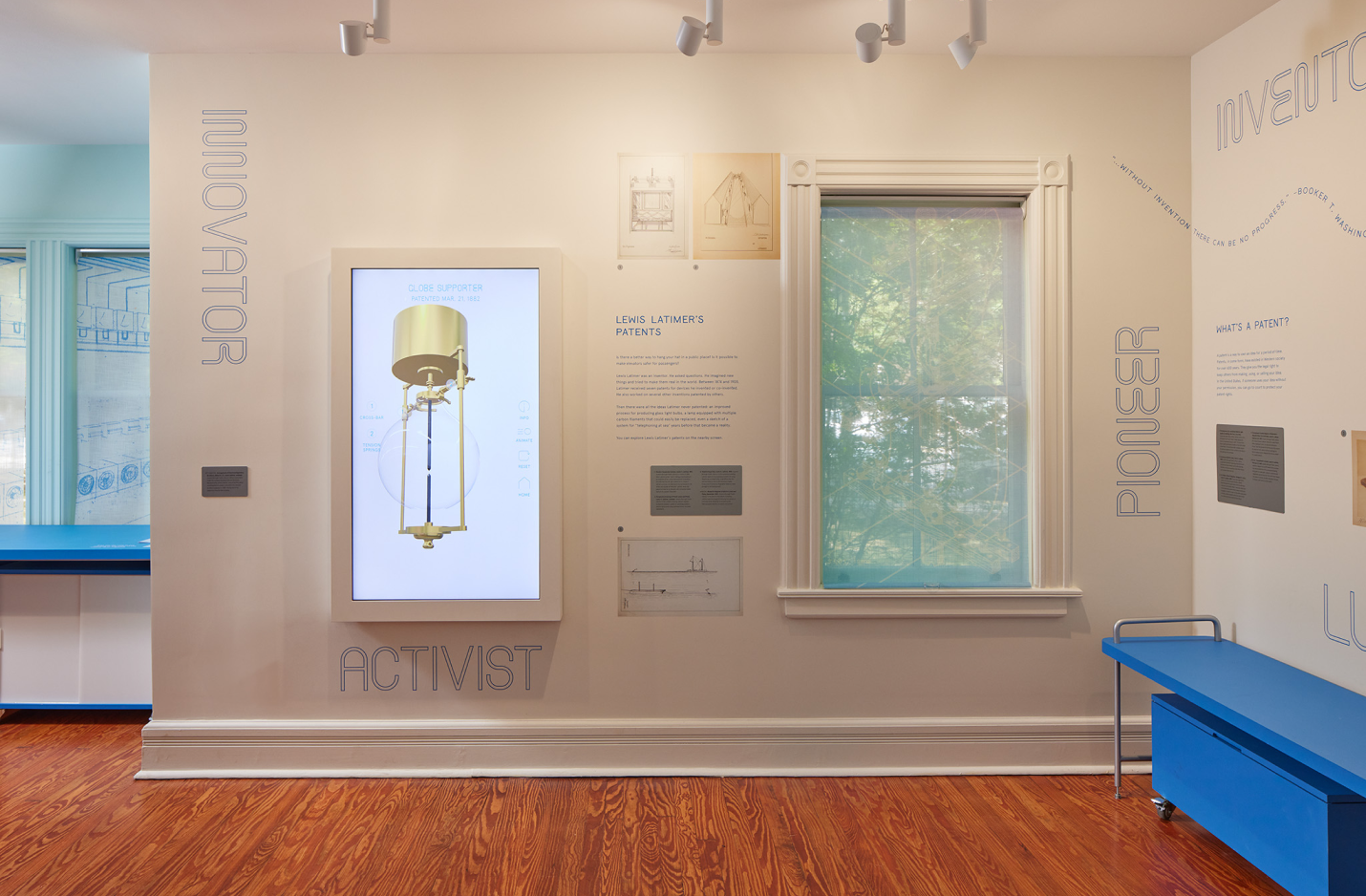

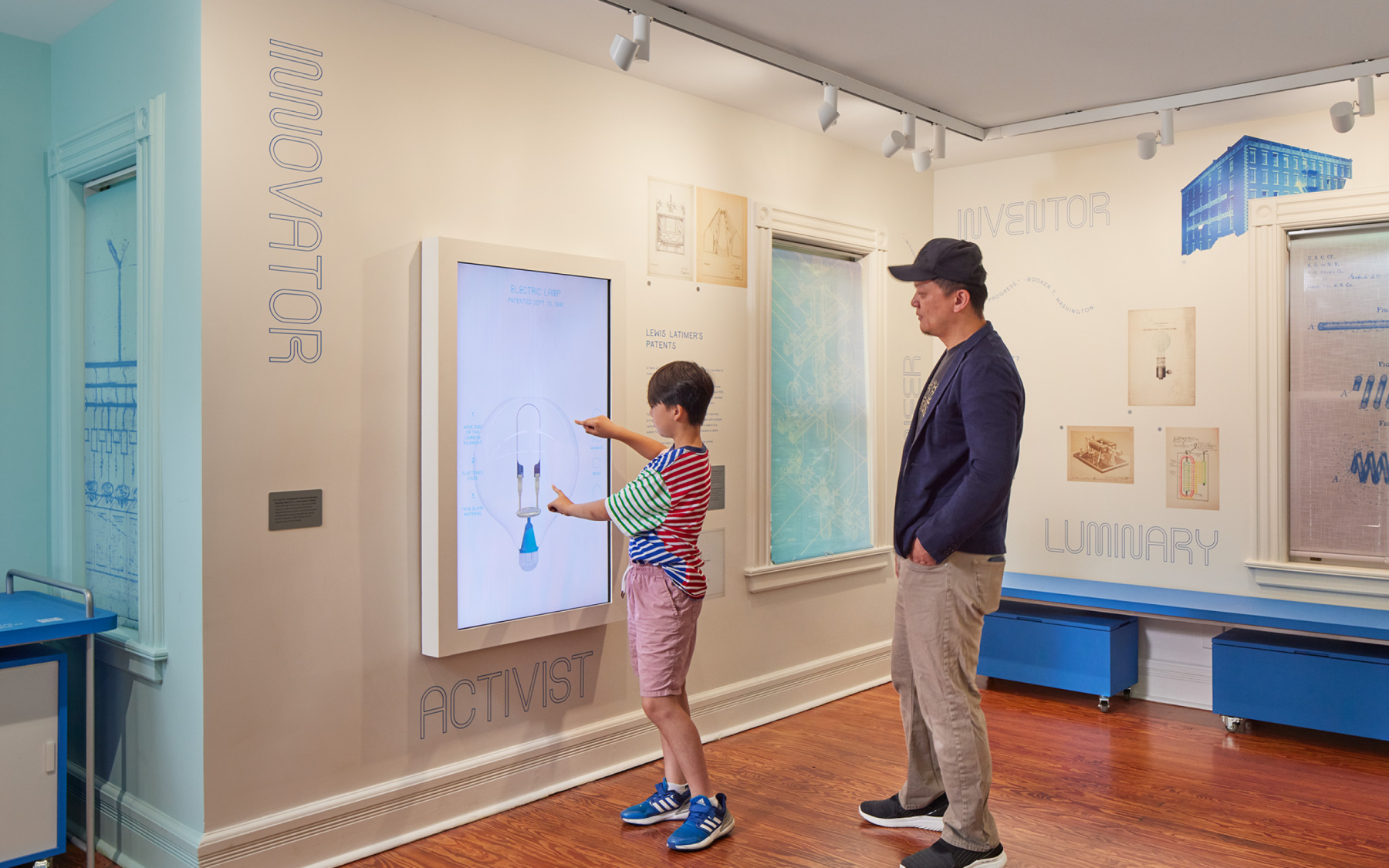
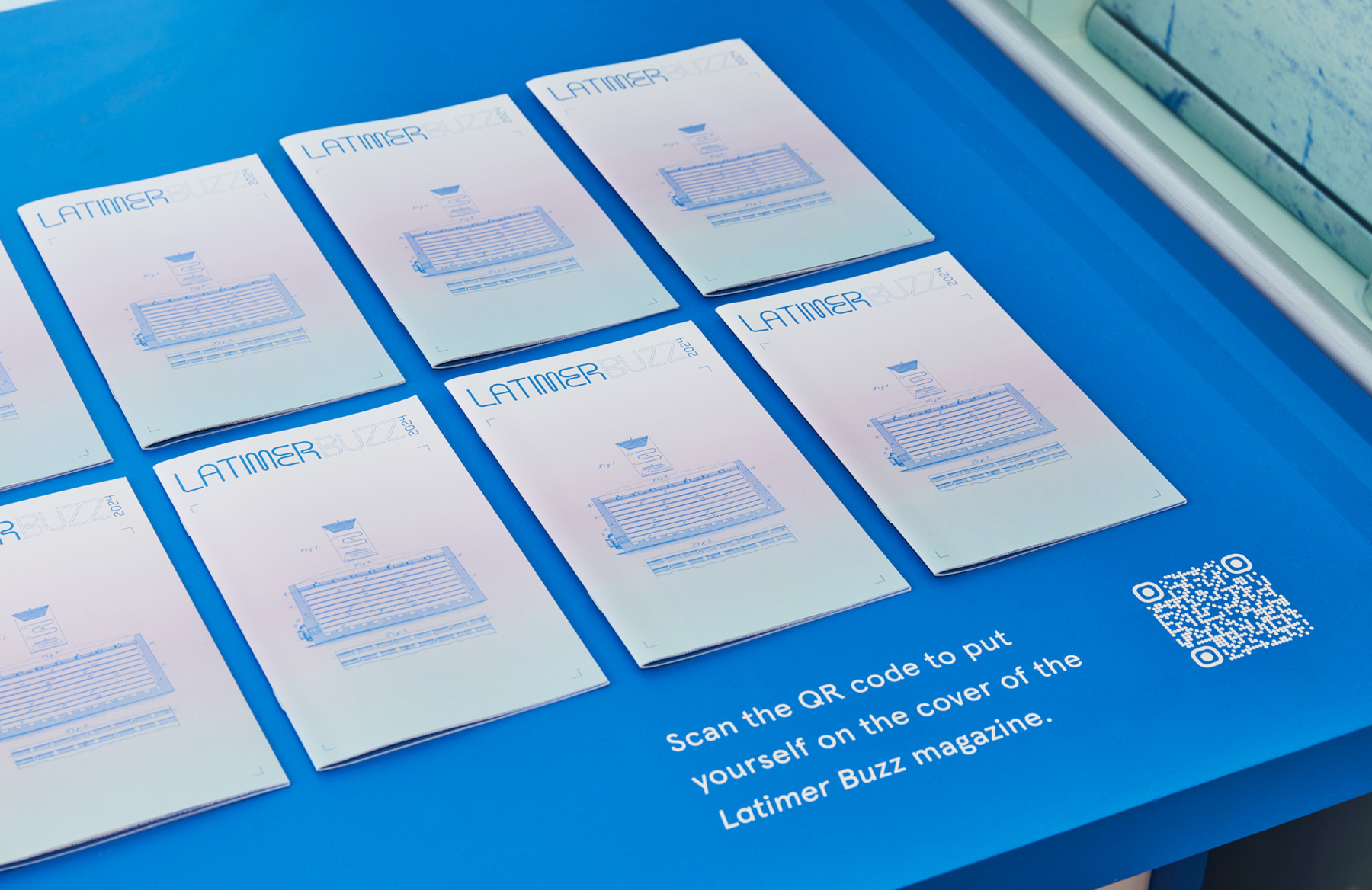
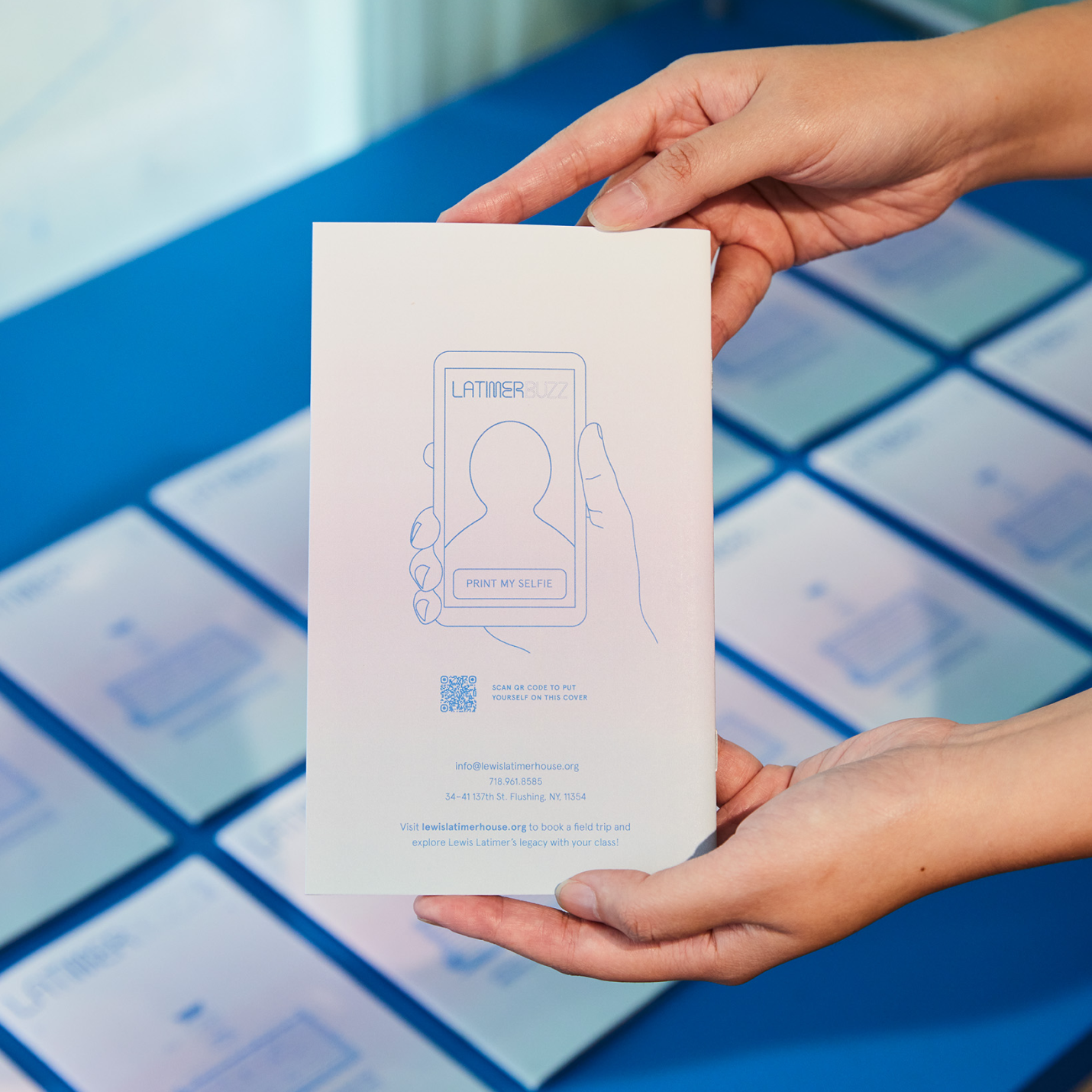
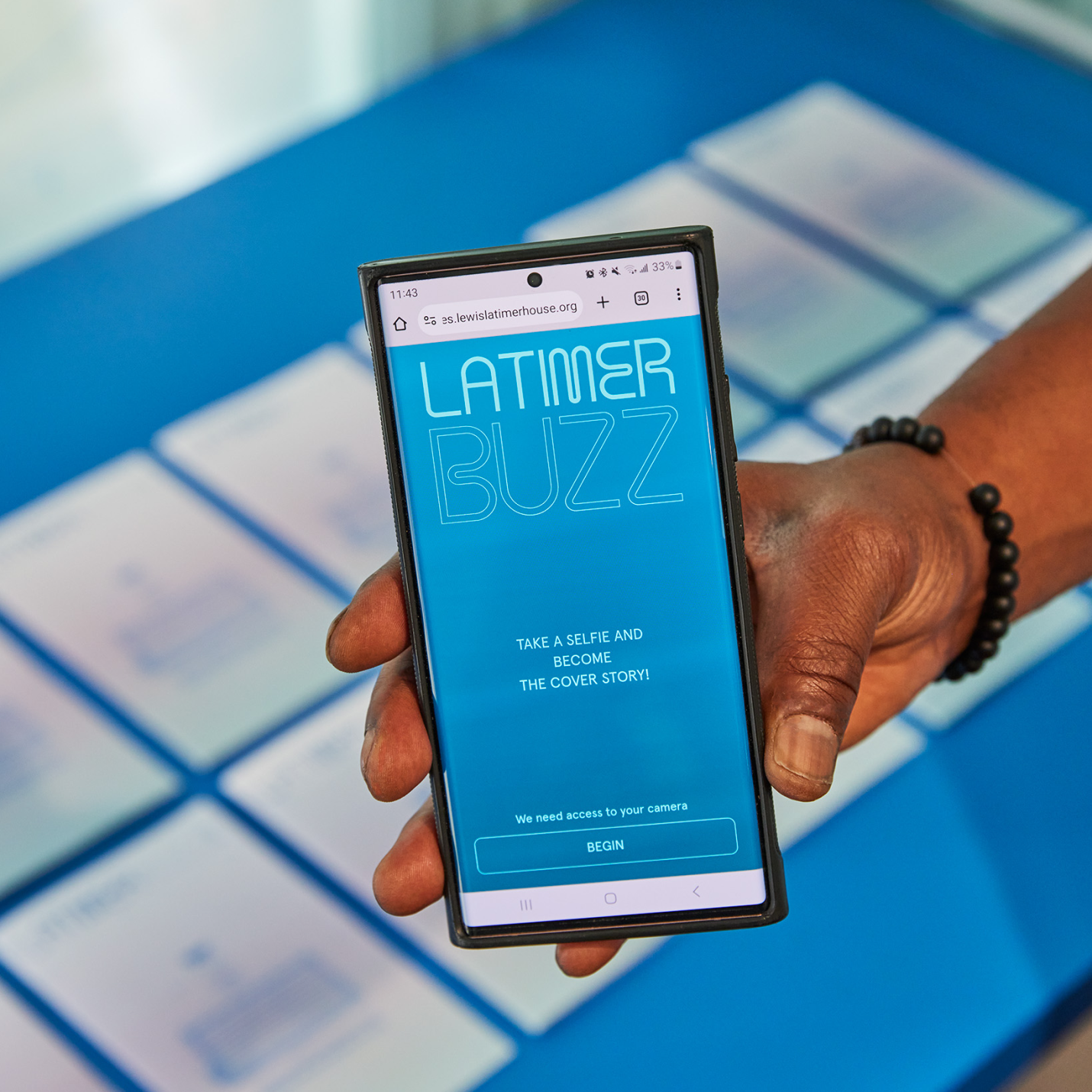
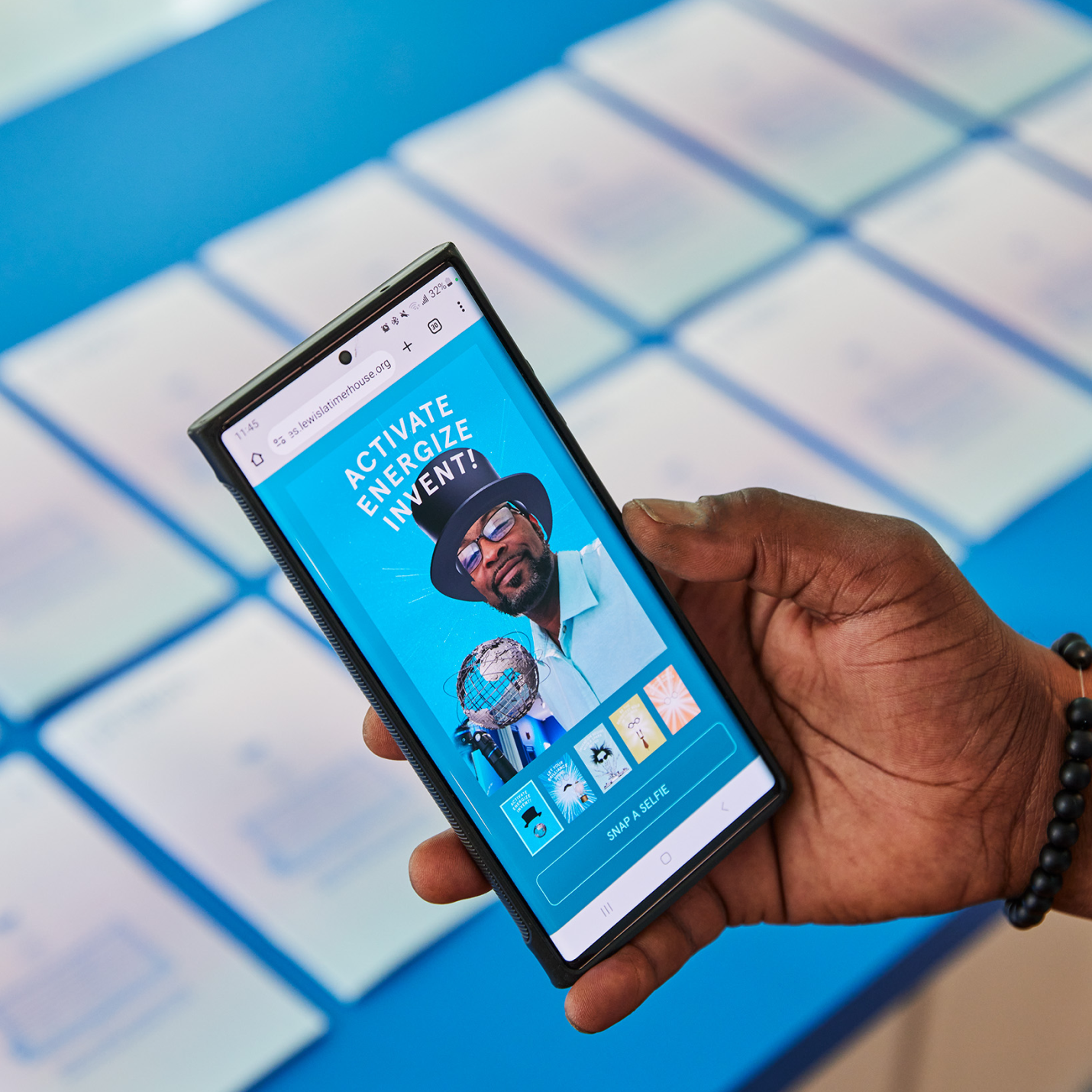
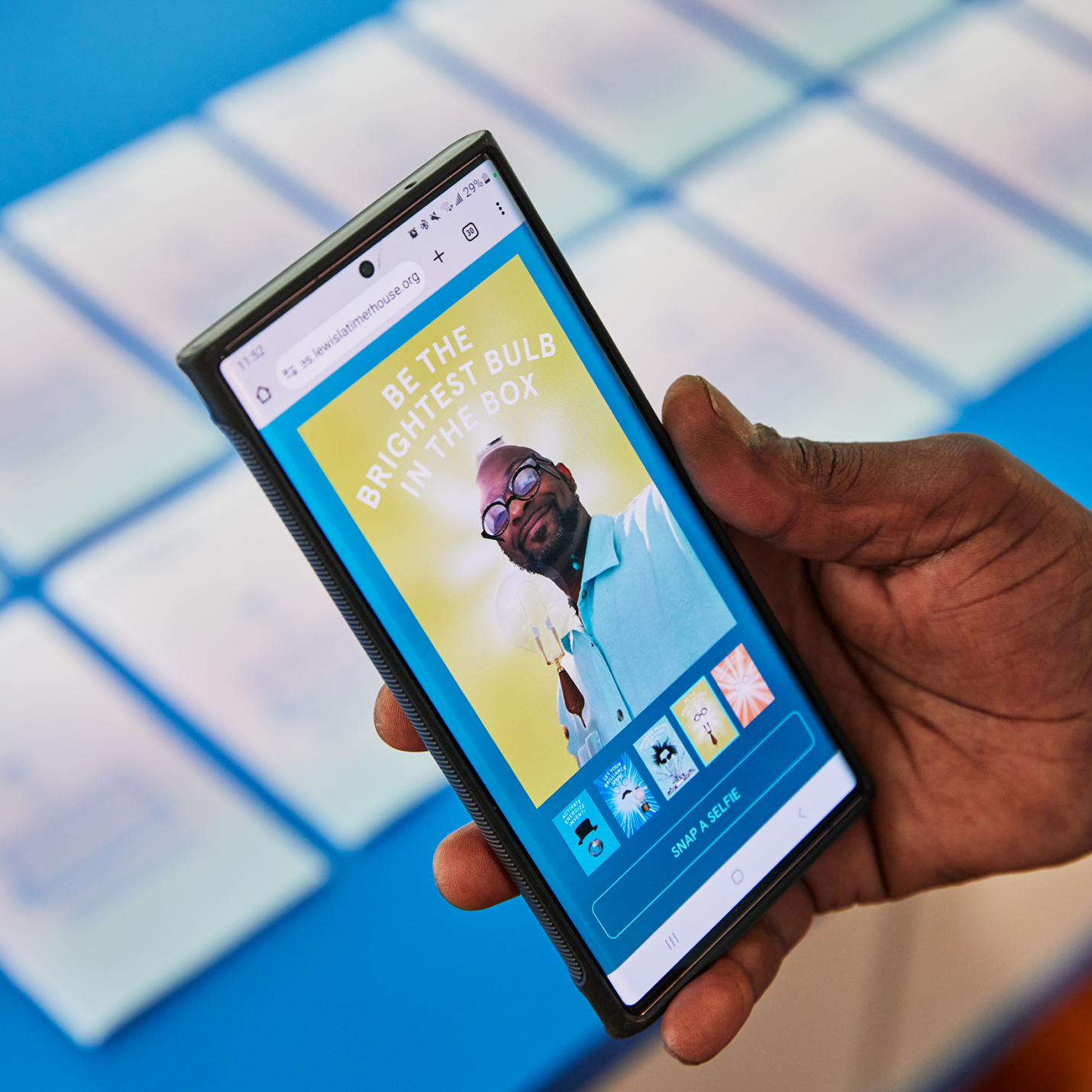
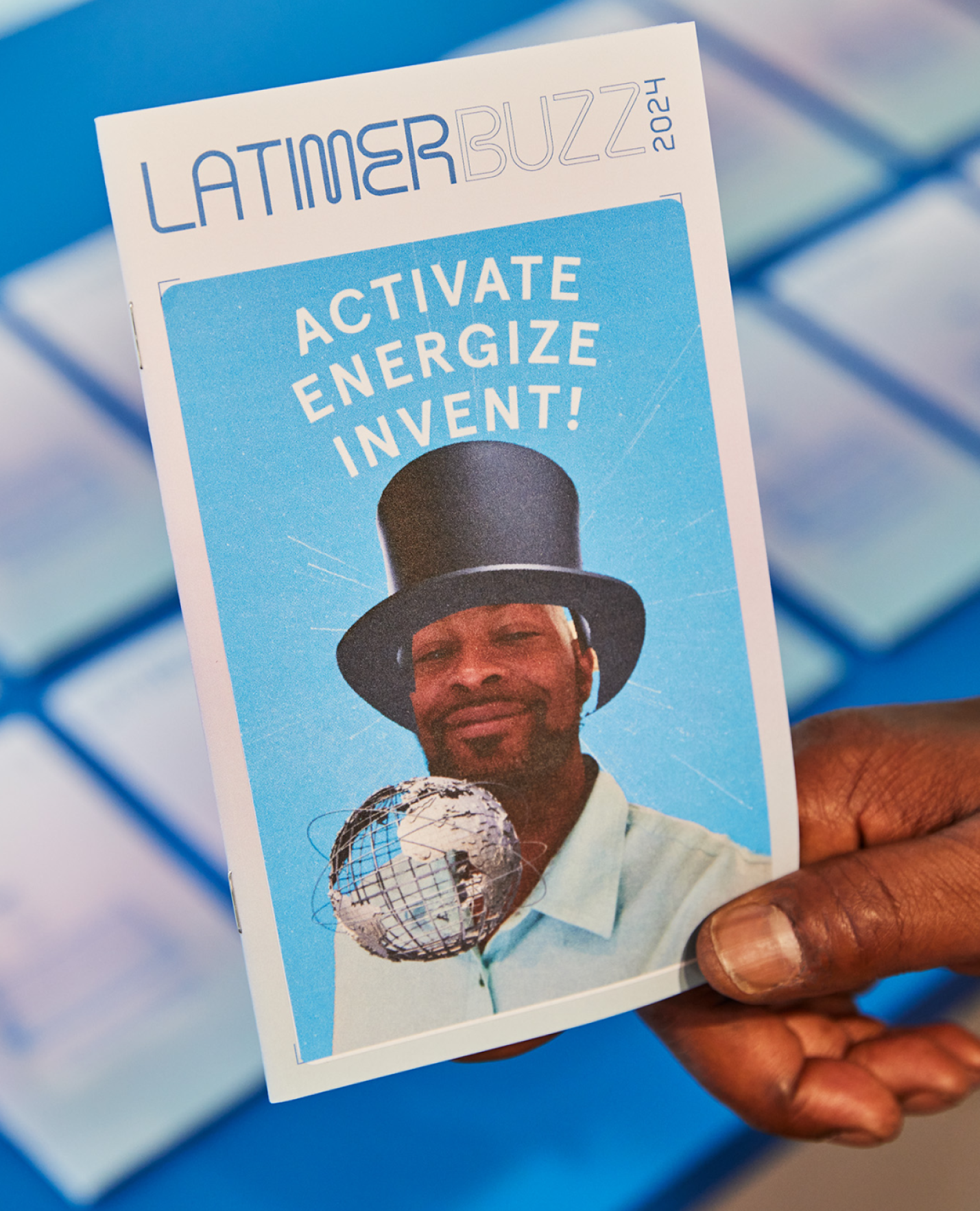
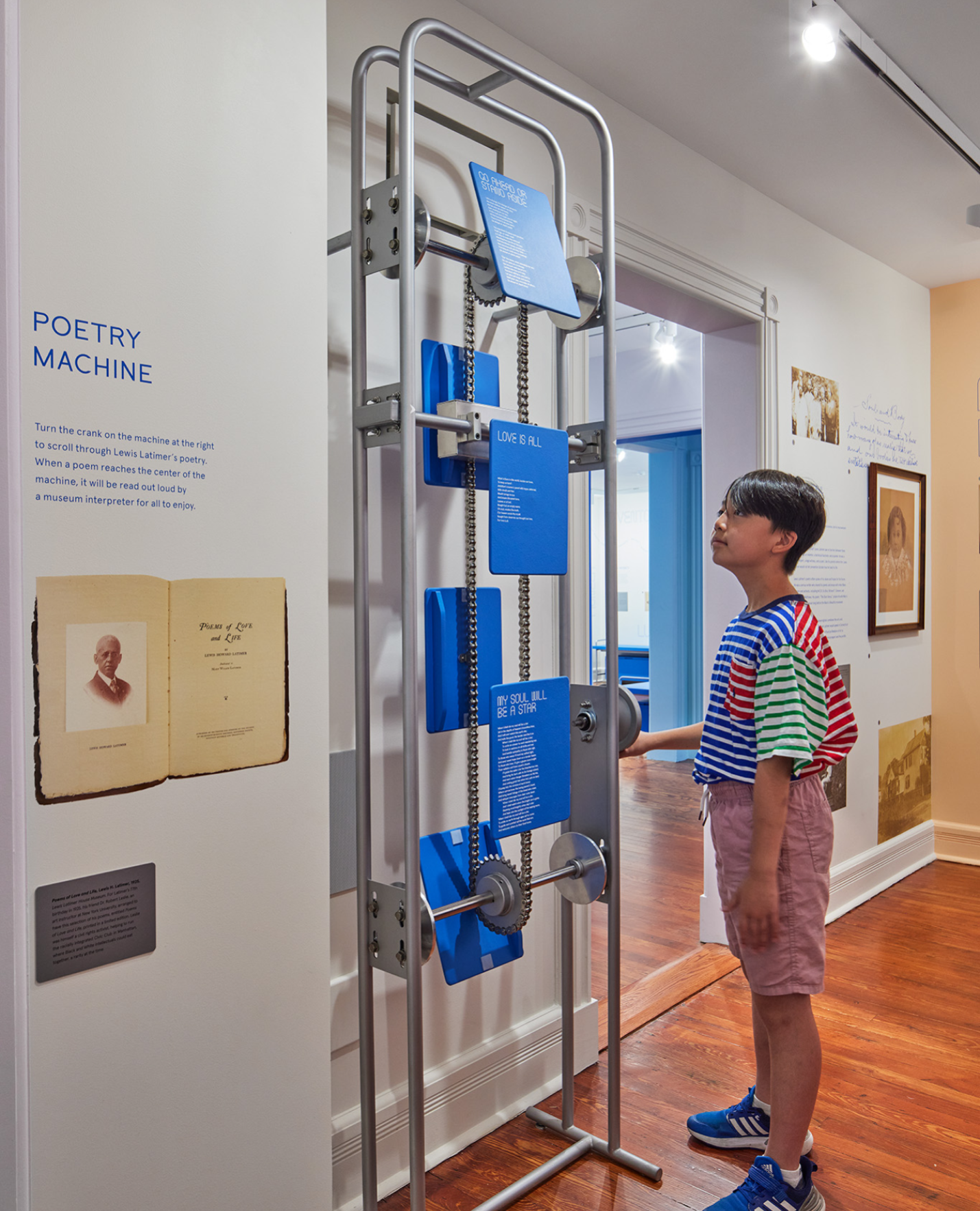
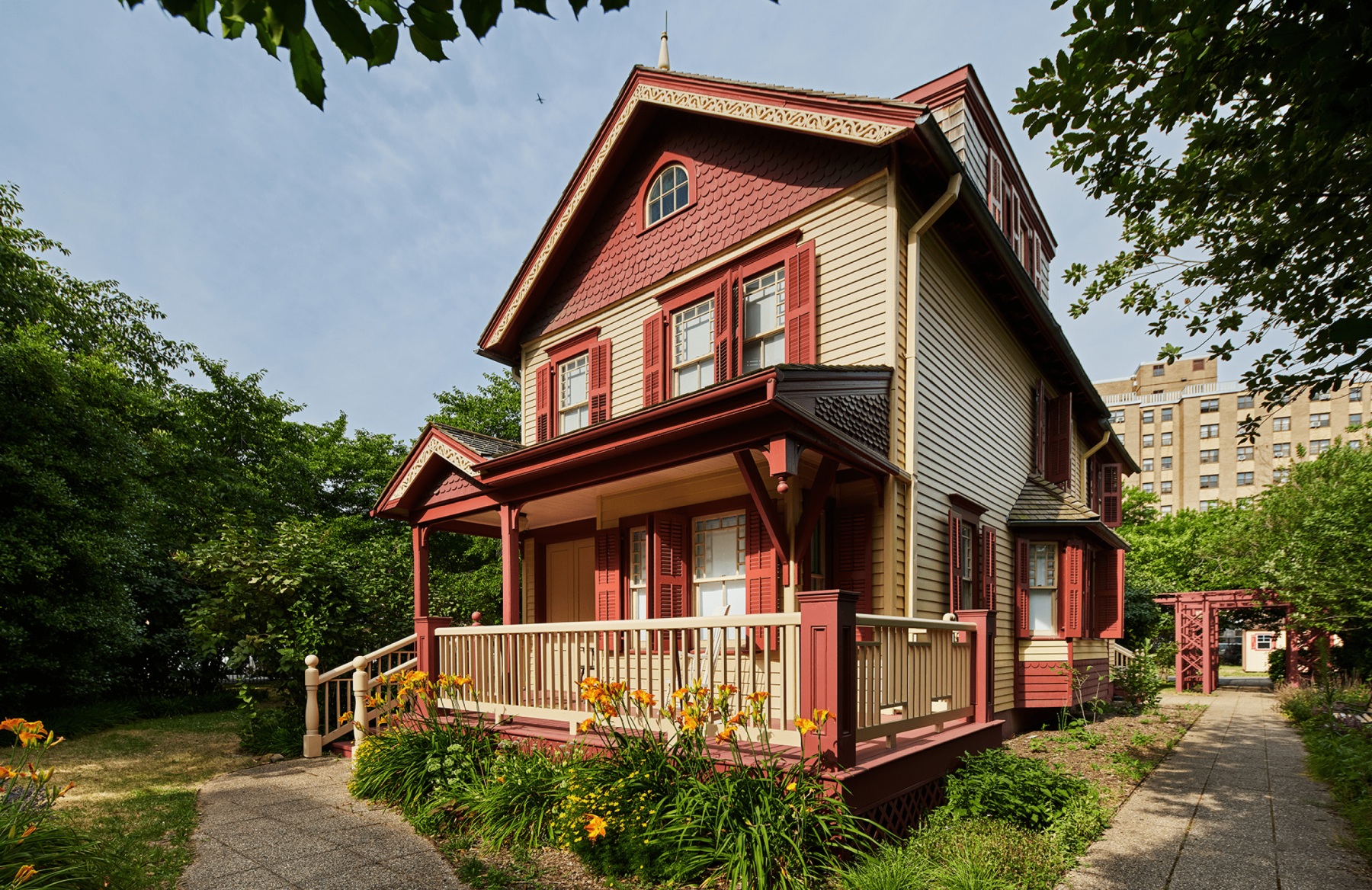
Connecting Stories Interactive
Smithsonian National Museum of Asian Art
Capabilities
Focus Area
Client
The “Connecting Stories” exhibition opened on the Mall on April 29, 2023, at the Smithsonian National Museum of Asian Art in Washington, D.C. “Connecting Stories” was designed to encourage visitors to explore the museum’s collection and develop personal connections to the stories and artwork preserved by the museum.
The interactive experience at the museum’s Freer Sackler Gallery offered visitors an engaging journey through the rich tapestry of Asian art, via a carefully curated selection of objects, images, maps, and interactive displays. Via a digital touchscreen and a colorful, animated projection, audiences could discover some of the symbols, patterns, and designs seen across the collection and learn about how their meanings change in different contexts. On a second touchscreen, National Museum of Asian Art staff and volunteers shared stories of their personal connections to objects in the collection.
We designed our two interactive pieces to enhance visitor engagement by deepening their understanding and appreciation of the gallery’s treasures. The first horizontal touchscreen unveiled the intricate motifs and symbols recurring across artworks, offering visitors an immersive exploration of their meanings and significance. The complementary vertical touchscreen panel invited audiences to explore the perspectives of gallery staff, tapping on headshots to discover their insights into selected artworks. Additionally, our motion design for the exhibit’s screensaver mode enhanced the space’s ambiance, projecting captivating visuals onto the gallery walls and ensuring an enriching and immersive experience for visitors.
Bridging the gap between audience and artifact, these interactive installations served as dynamic tools for deciphering and interpreting the complexities and cultural significance of Asian art. The experience fostered a deeper connection with the artworks, enriching visitors’ Freer Sackler Gallery experience.
Exhibition Teams
-
Cultural Innovation
Lead Exhibition Design -
KASA Collective
Interactive Kiosks -
Kubik Maltbie
A/V Fabrication
KASA Collective
-
John Kudos
Creative Director -
Robert de Saint Phalle
3D Creative Director -
Ashley Wu
Art Director -
Fay Qiu
Lead Designer -
Owen Febiandi
Designer -
Putu Yogiswara
Designer -
Imam Fadilah
Animator -
Muhammad Syamil Haqqoni
Designer -
Chris Manlapid
Lead Software Developer -
Joe Baker
Engineer (Informal) -
Jess Mackta
Project Manager
Kubik Maltbie
-
Thomas Miller
A/V Fabricator -
Donald Sweetman
A/V Fabricator
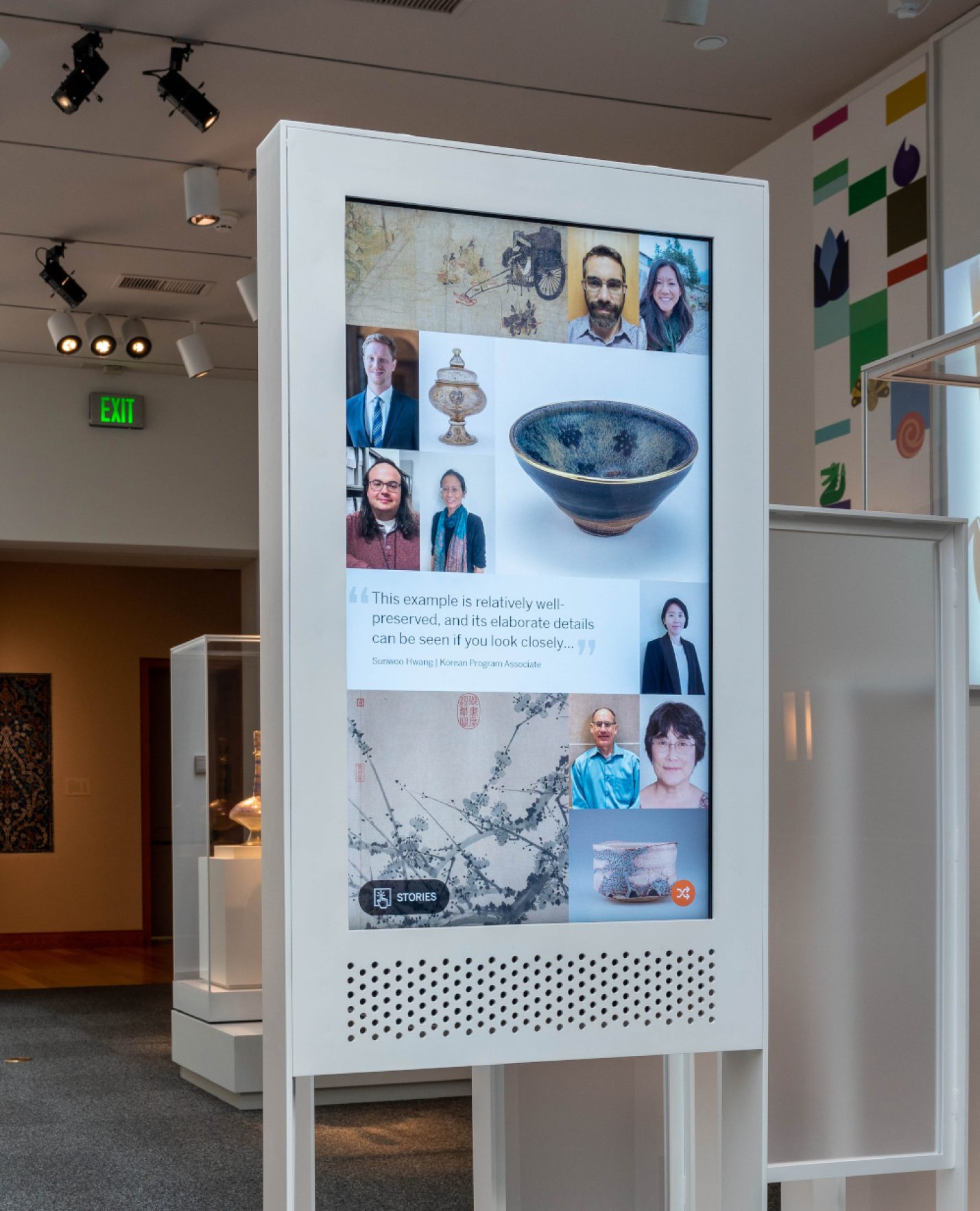
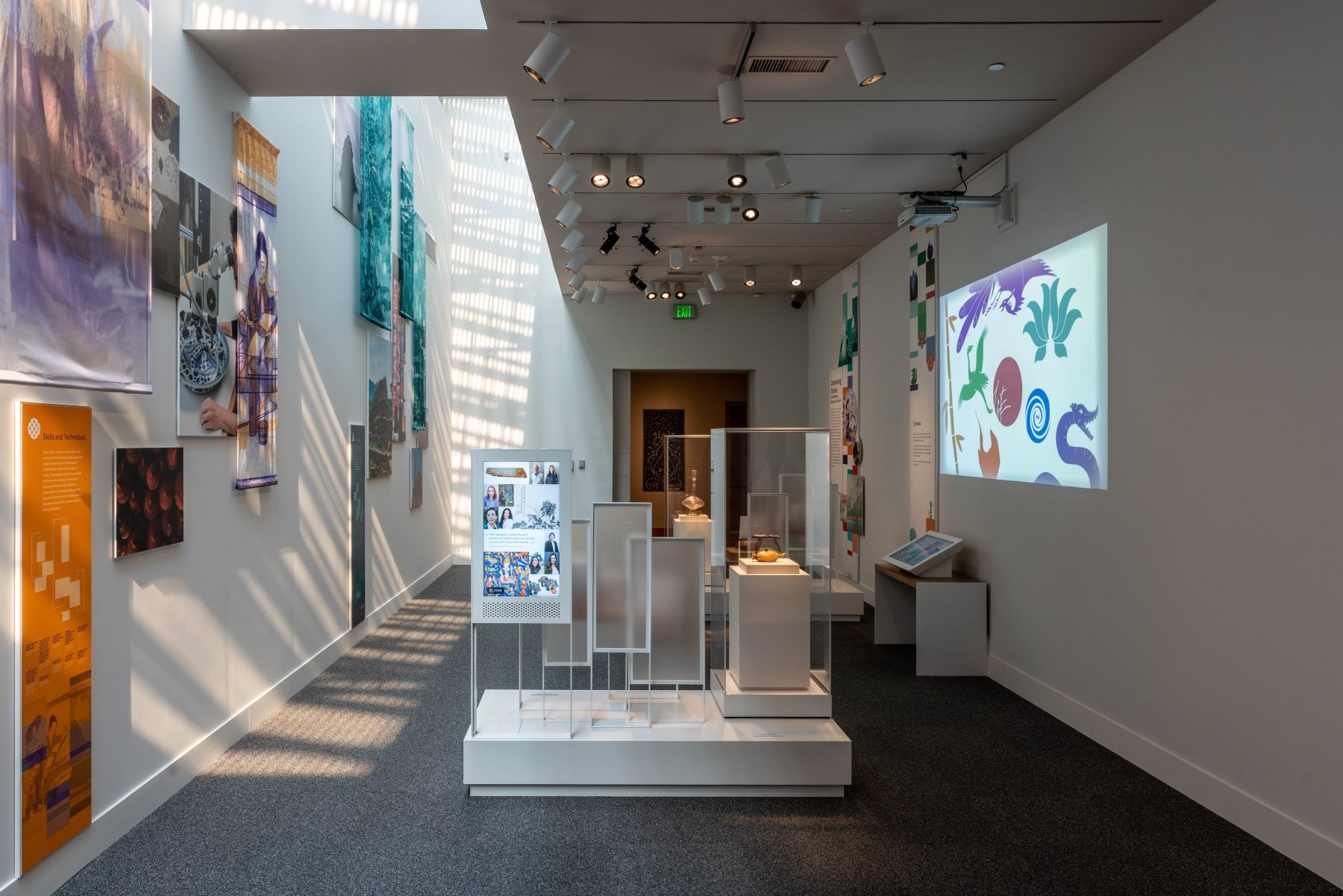
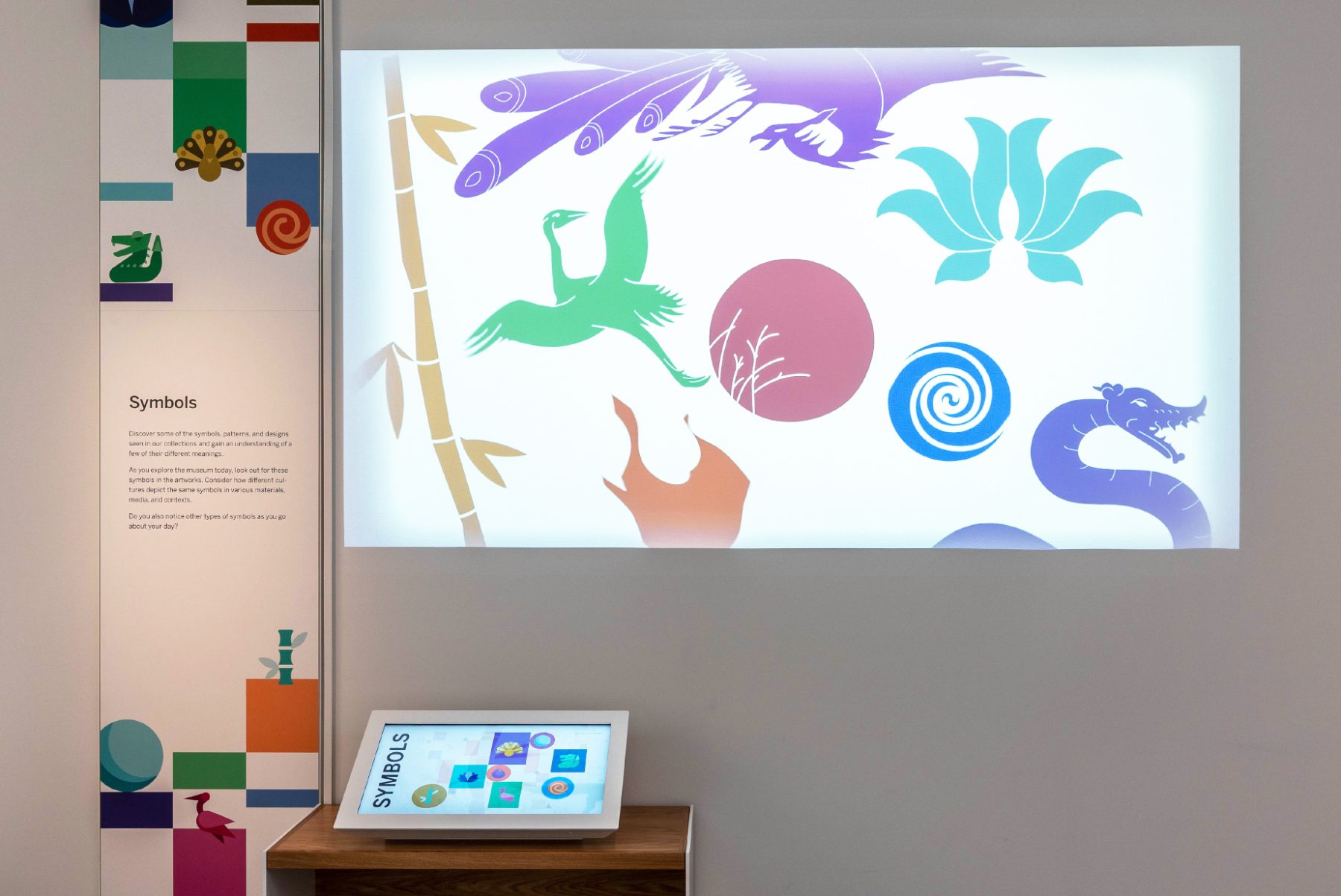
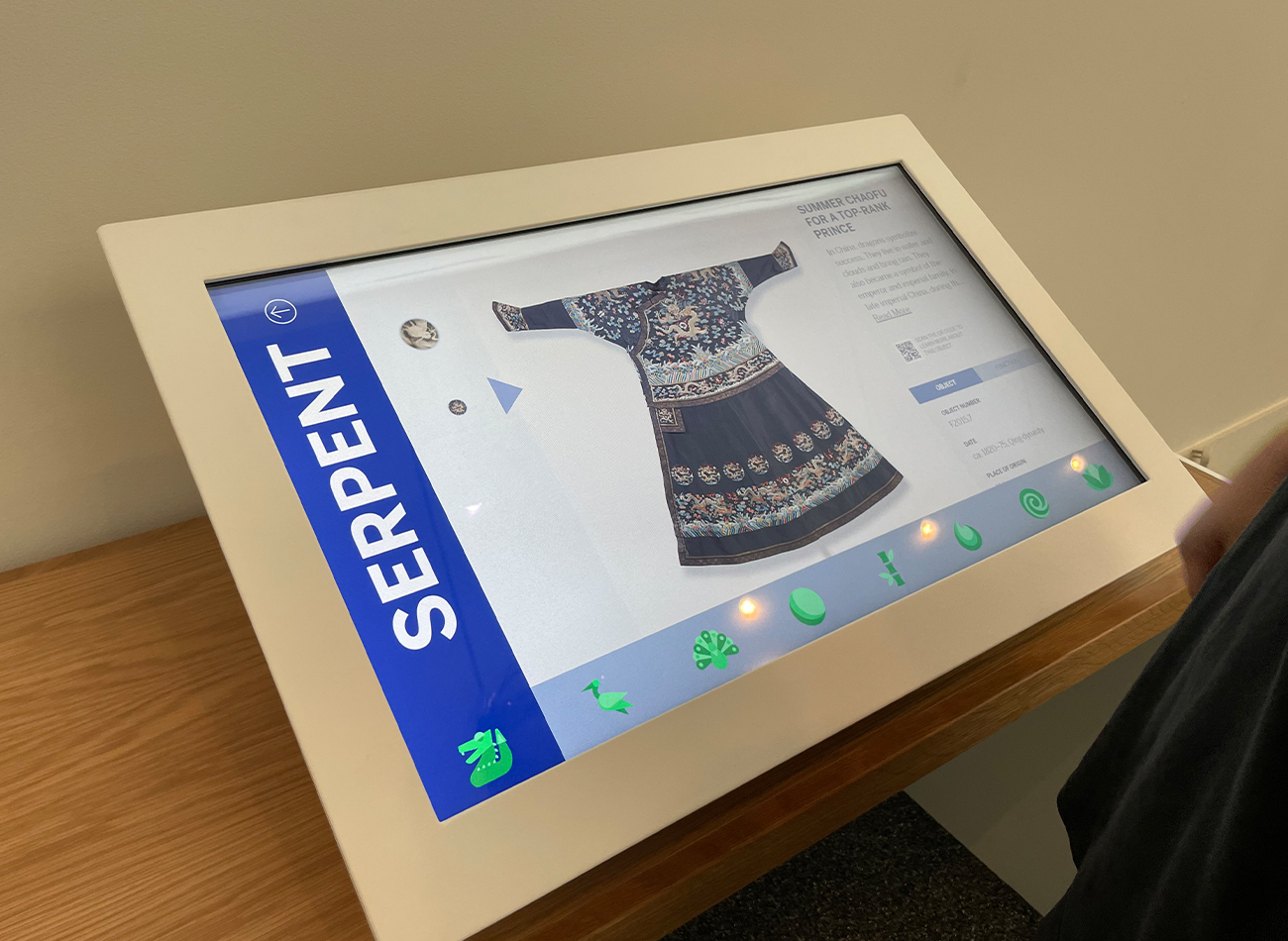
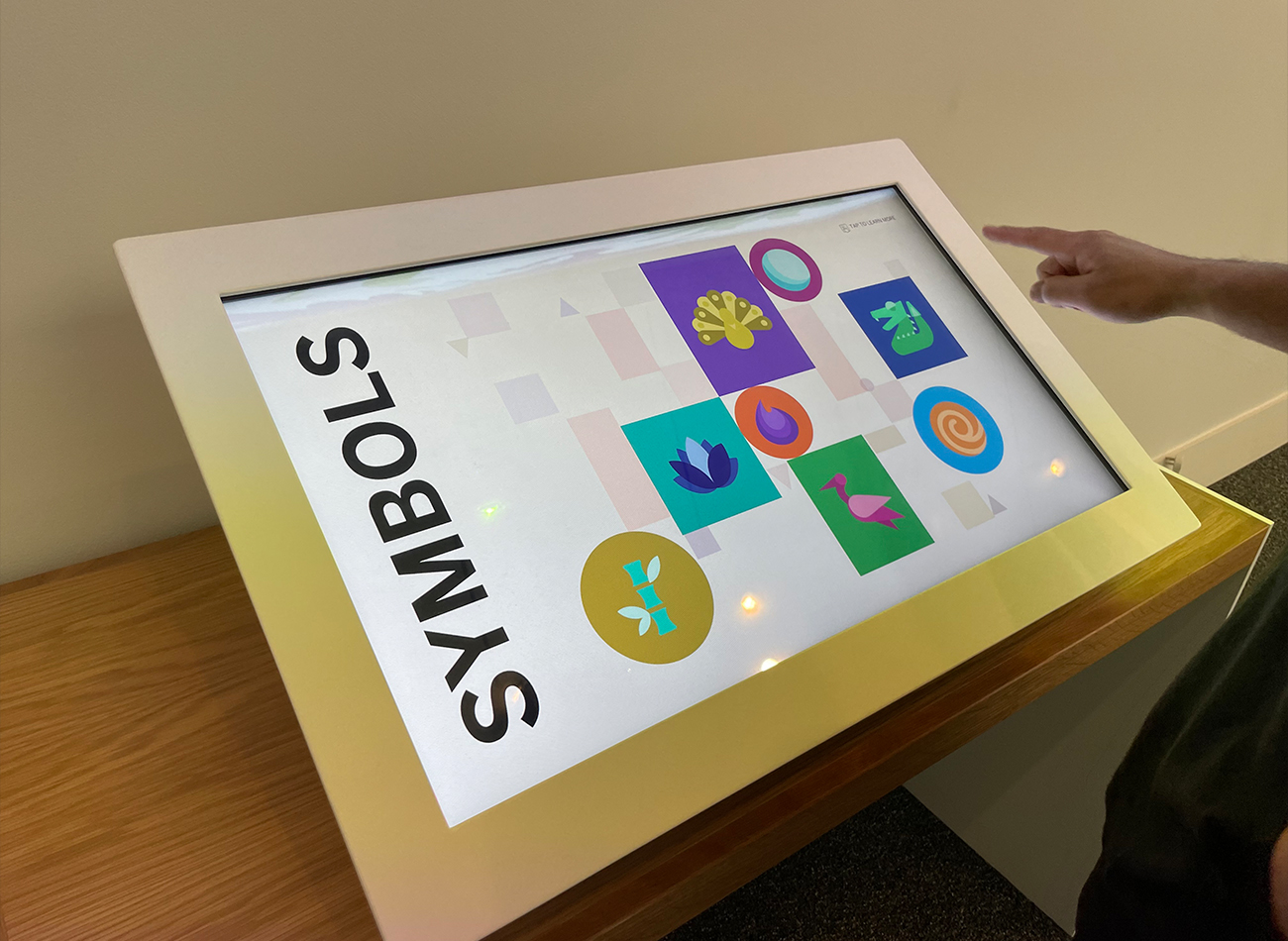
Between Four Freedoms
Four Freedoms Park Conservancy
Artist Shaun Leonardo’s 2021 outdoor installation “Between Four Freedoms” reinterpreted and celebrated Franklin D. Roosevelt’s seminal 1941 address calling for freedom of worship, freedom of speech, freedom from want, and freedom from fear. The interactive experience for the installation at Franklin D. Roosevelt Four Freedoms State Park redefines public engagement with art and social discourse.
Guided by Leonardo’s vision, our branding mirrors the project’s ethos, employing a brown color scheme evocative of human skin tones and the “Martin” typeface, inspired by the Memphis Sanitation Strike of 1968, to represent a message of non-violence and inclusivity. Leveraging innovative technology such as image recognition, we enabled visitors to engage with the artwork by scanning QR codes, launching the mobile website, and exploring workshop videos led by Leonardo. With over 25,000 images collected, the installation ensured accessibility and interactivity on both the Manhattan and Long Island City sides, inviting visitors to delve into the narratives of vulnerable communities and rediscover Roosevelt’s timeless call for freedom and dignity.
KUDOS Design Collaboratory
-
John Kudos
Creative Director -
Fay Qiu
Designer -
Christyan Junaedi Setiawan
Web Developer -
Imam Fadilah
Animator
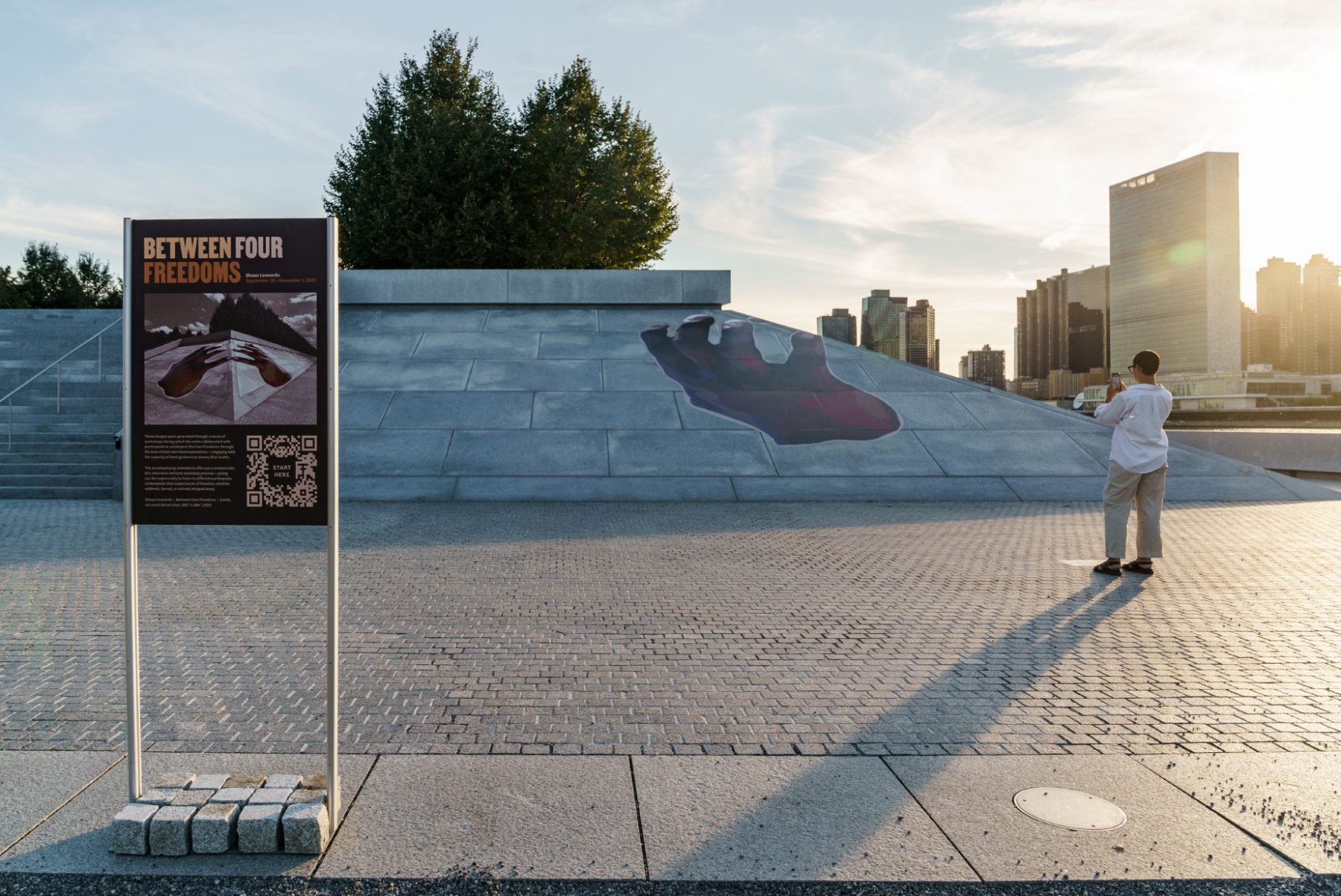
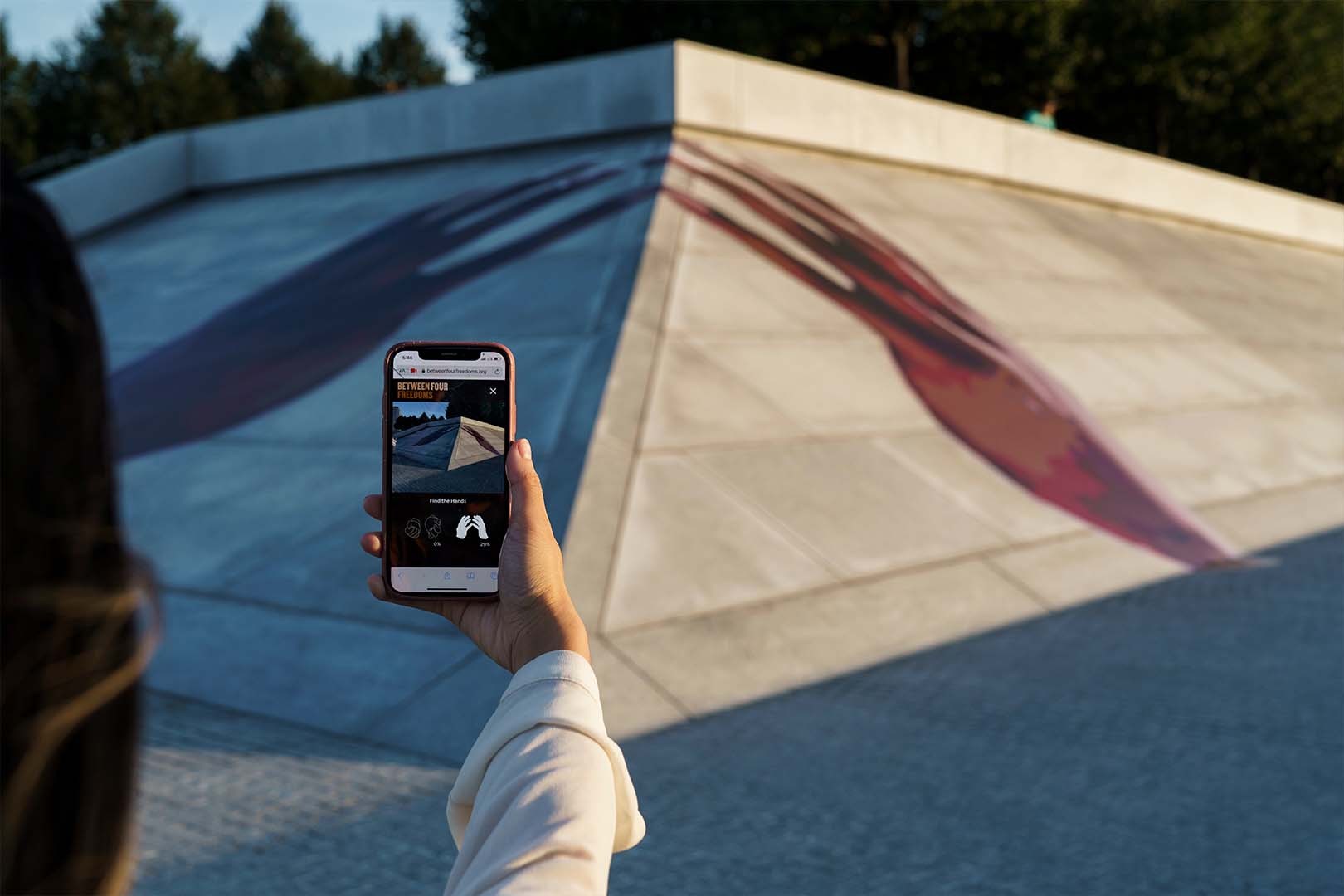
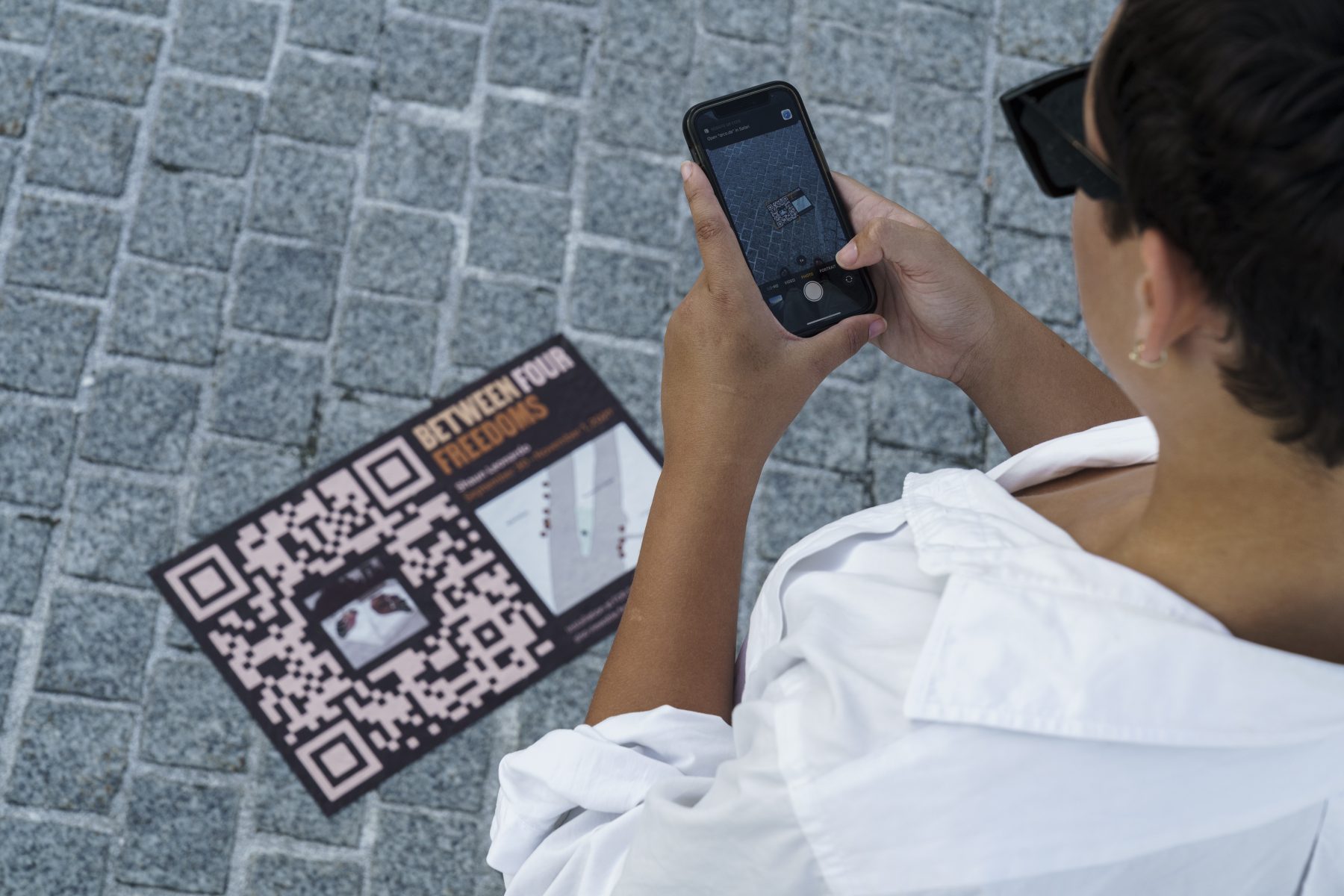
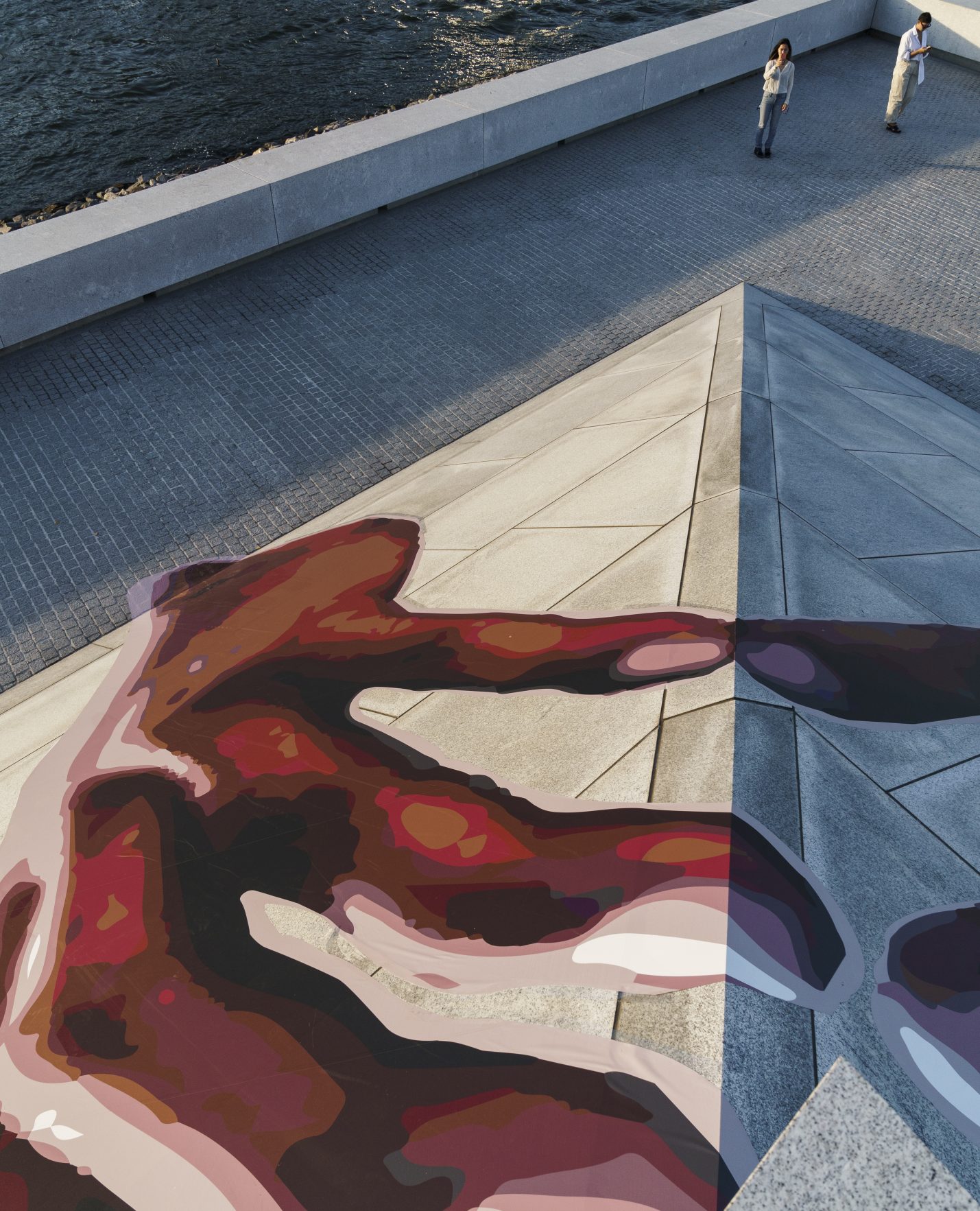
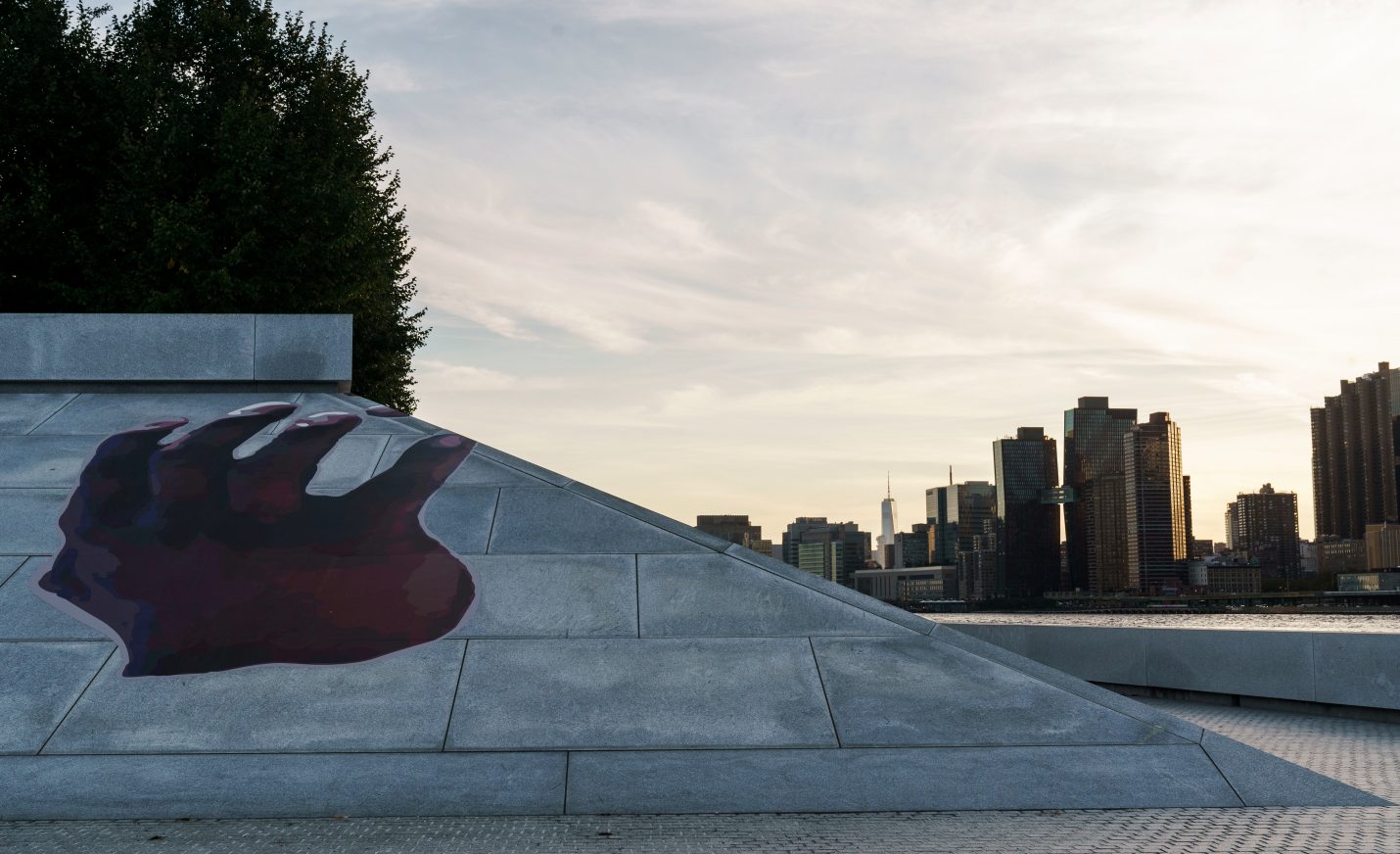
Power of Science
The Phillip and Patricia Frost Museum of Science
Focus Area
The “Power of Science” exhibition, now on view at the Frost Museum in Miami, Florida, invites visitors to explore how science pushes the boundaries of possibility as they learn about groundbreaking scientific research and discoveries. The exhibit is a playground for curious minds, filled with tangible and digital experiences spanning a 6,000-square-foot area.
We worked with Squint/Opera to develop user flows and UX/UI components for various gamified exhibits in the exhibit’s Environment section, including:
BUILD YOUR OWN COASTLINE
This activity engages up to three players in building natural and man-made infrastructures on shorelines to help against natural disasters.
HURRICANE HINDSIGHT
This dual-screen game explores how we measure the risk of hurricanes, and whether it’s safer to stay or evacuate—a topic of great importance in Florida.
PERIODIC TABLE
This two-player station allows in-depth study of the periodic elements, enabling the discovery of chemical reactions when the right elements are combined by both players.
RAMP ANIMATIONS
These animated narratives on transparent LEDs reveal related artifacts behind their glass display case.
The Power of Science is on view at Frost Museum of Science in Miami, Florida.
Exhibit Team
-
Thinc Design
Lead Exhibition Design -
Squint/Opera
Lead Digital Media -
KUDOS Design Collaboratory
UX/UI Design -
Kubik Maltbie
Fabrication & Hardware
KUDOS Design Collaboratory
-
John Kudos
Creative Director -
Sumit Paul
UX/UI Designer -
Ashley Wu
UX/UI Designer
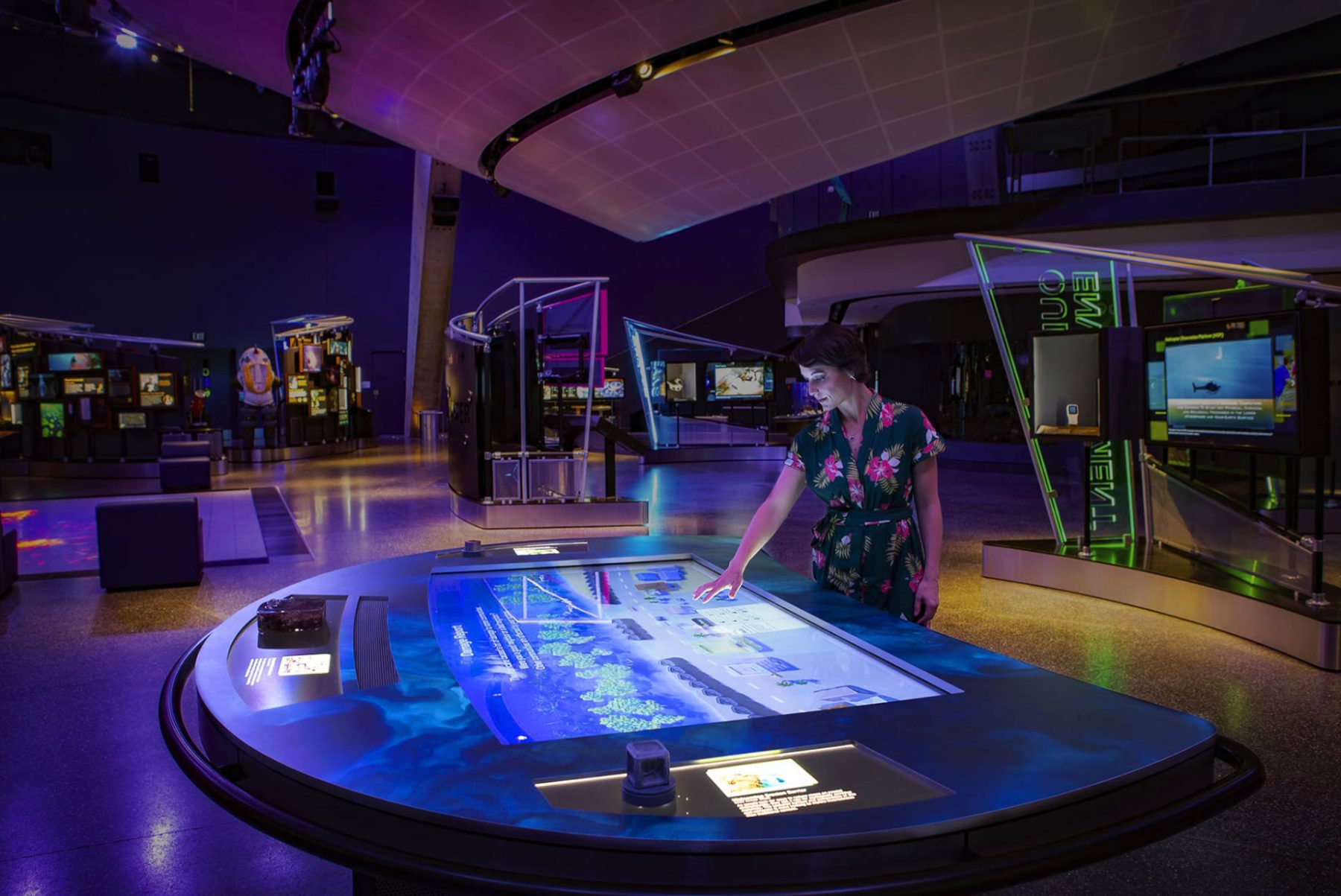
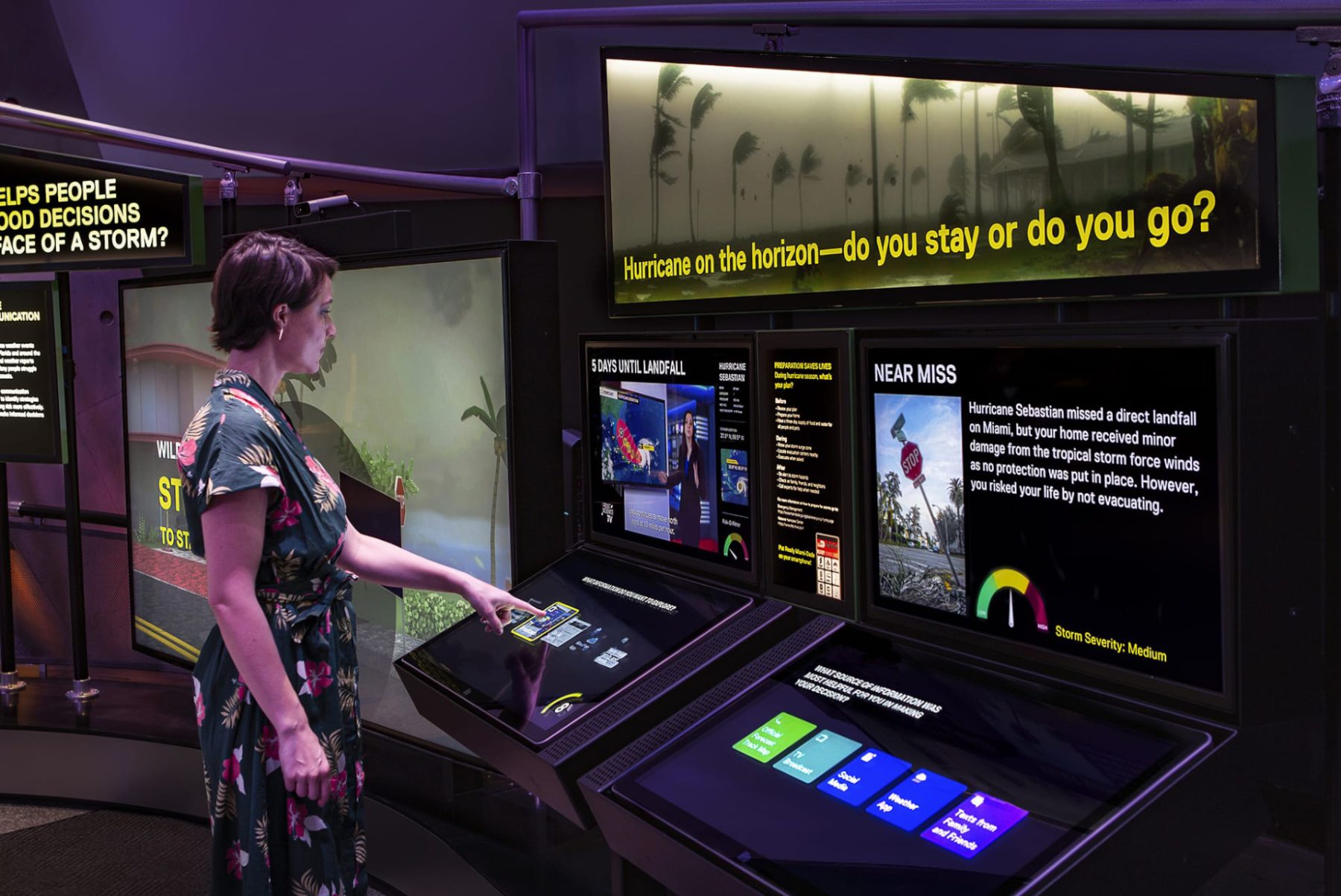
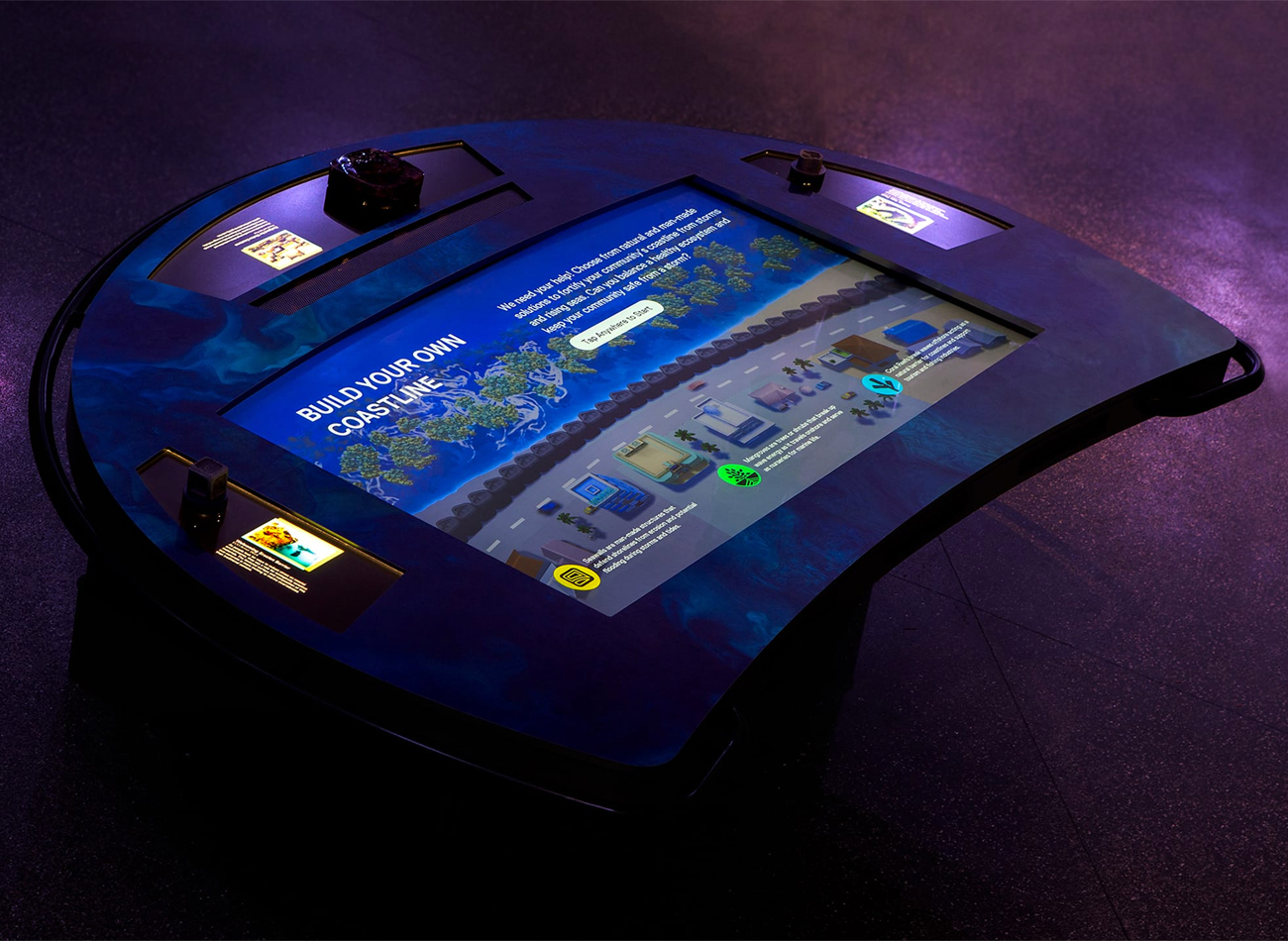
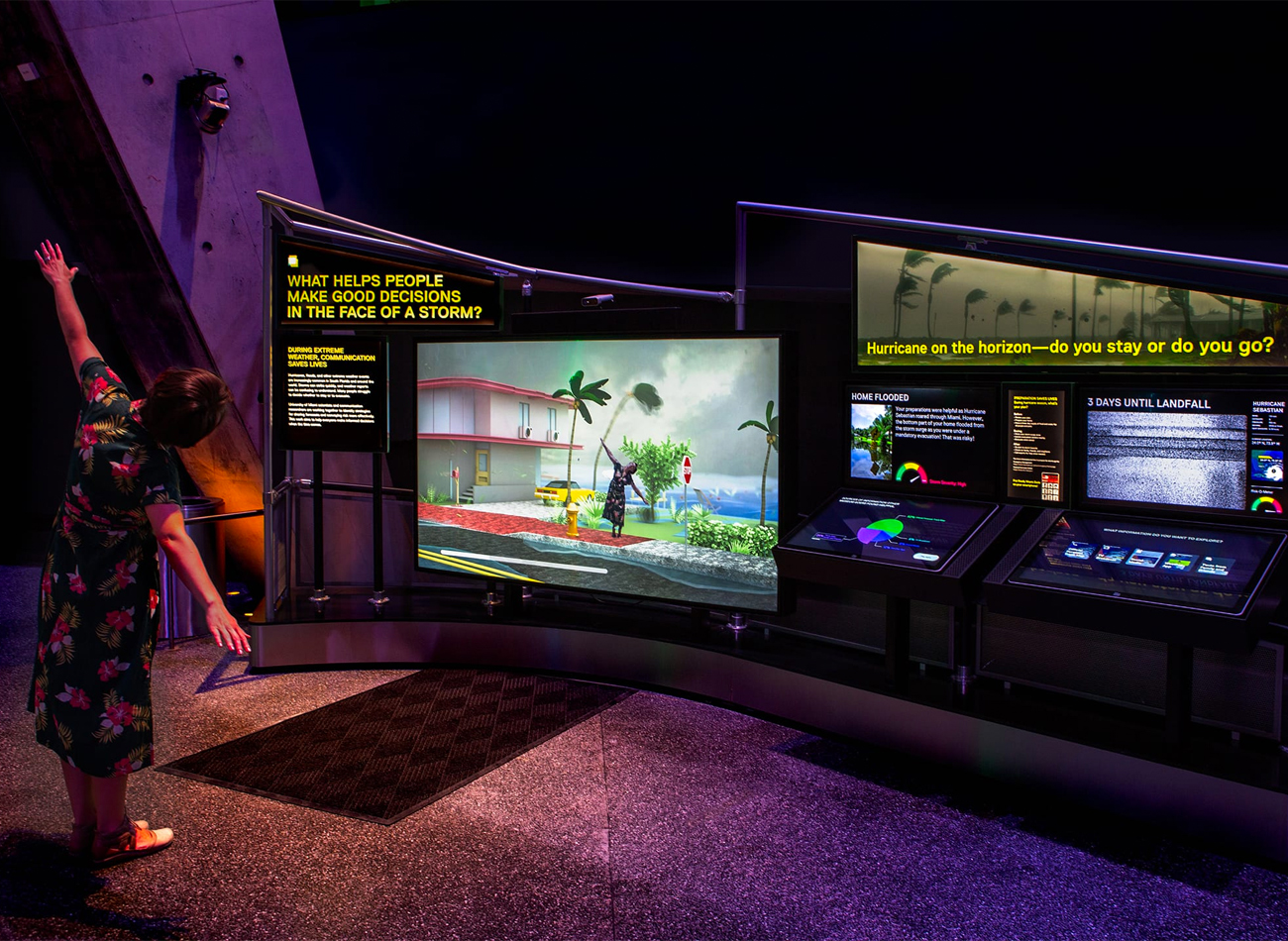
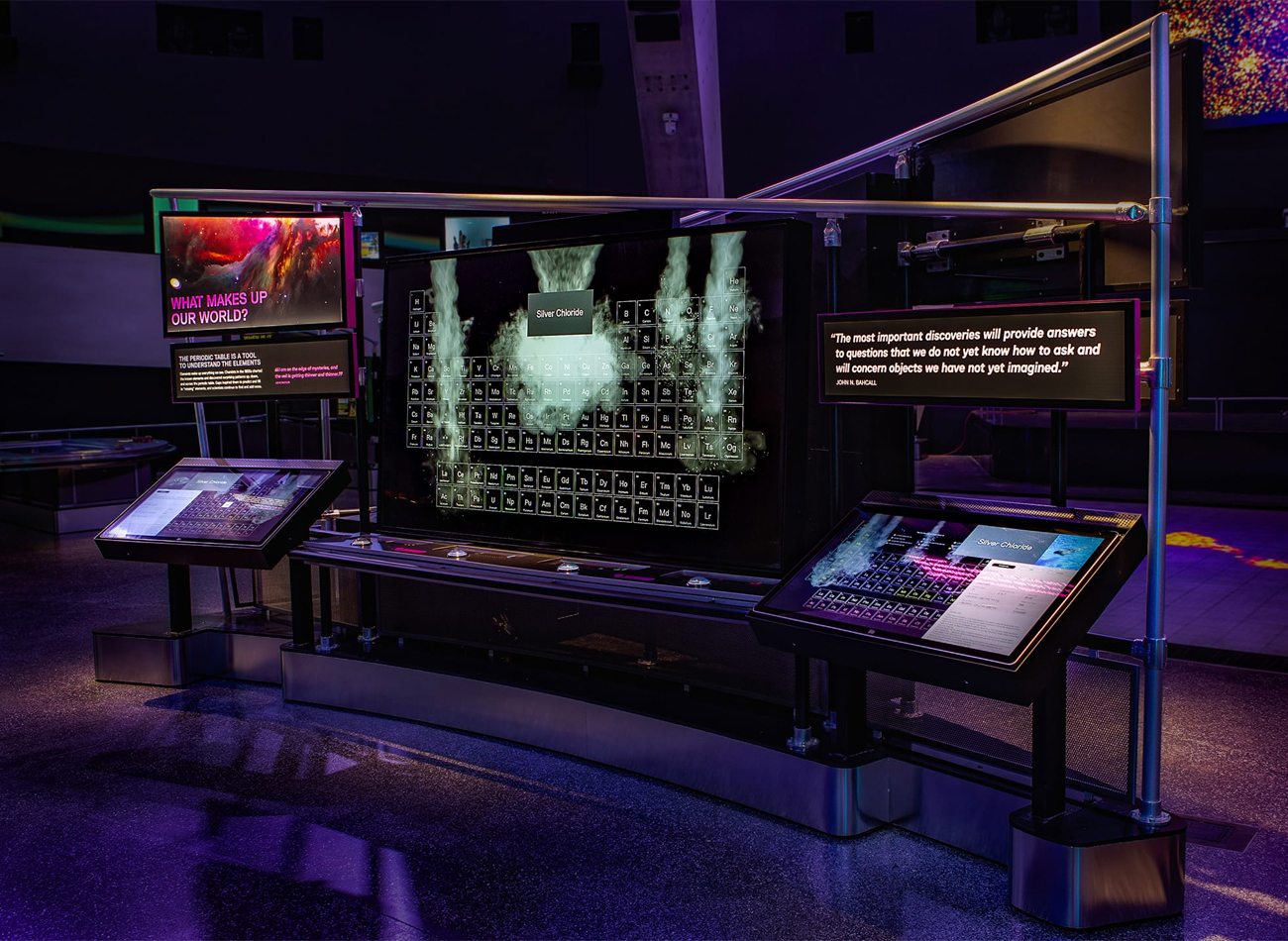
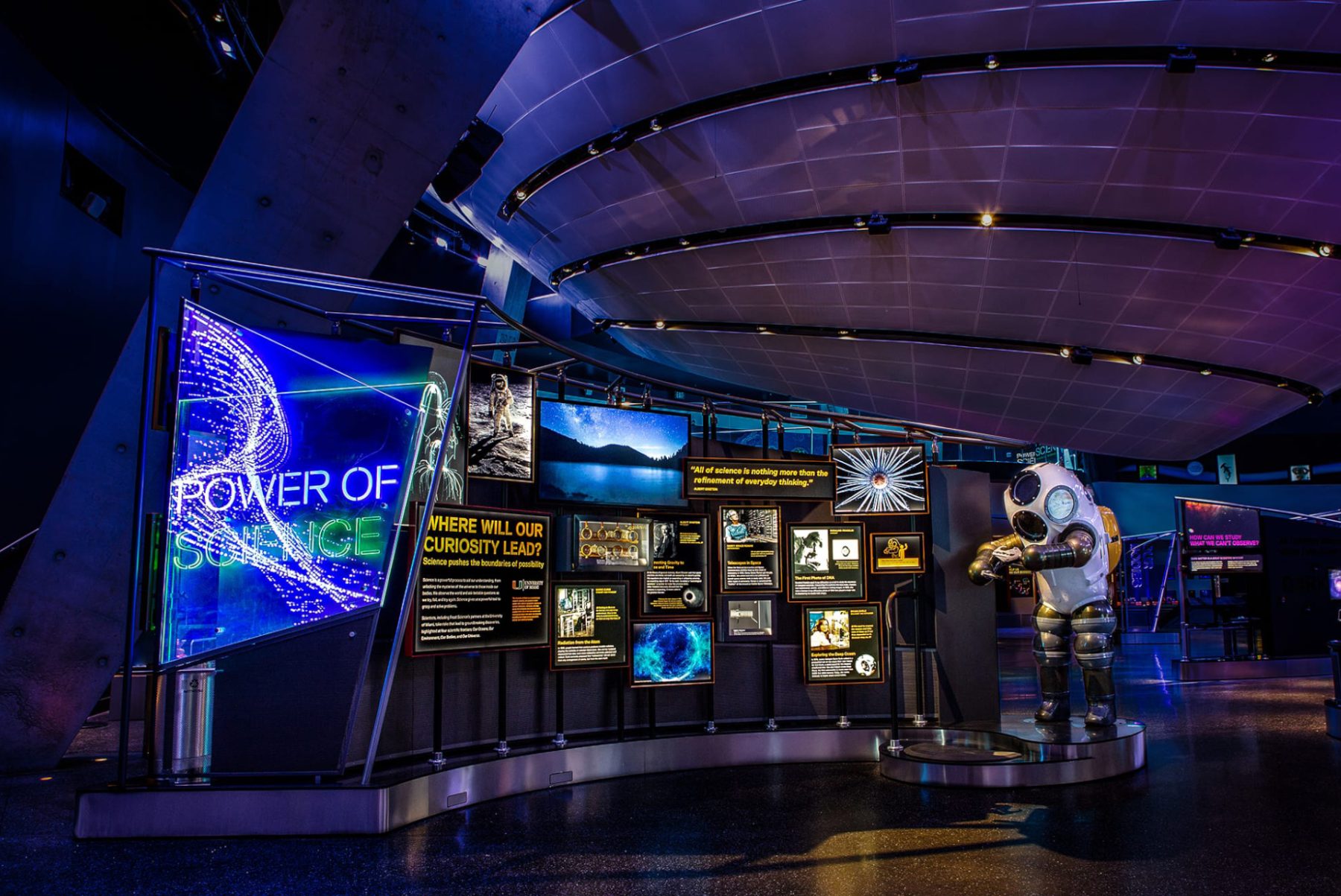
Colonists Citizens Constitutions Virtual Exhibition
Dorothy Tapper Goldman Foundation
Capabilities
Focus Area
Awards
-
GDUSA 2020 American Web Design
The “Colonists Citizens Constitutions” exhibit, launched in February 2020 in collaboration with the Dorothy Tapper Goldman Foundation, spotlights 42 rare documents from the Foundation’s extensive collection of Americana, telling the story of how our state and federal constitutions were imagined, formulated, written, and approved by ordinary people. These individuals arrived in America as colonists then made themselves its first citizens, while codifying their philosophies of governance and human rights via the writing of constitutions.
We originally designed the show’s website to serve as a supplement to the in-person exhibition at the New-York Historical Society. However, due to museum closures caused by COVID-19, we ultimately published a virtual tour of the gallery instead, ensuring its documents remained accessible to the public.
KUDOS Design Collaboratory
-
John Kudos
Creative Director -
Owen Febiandi
Designer -
Chris Manlapid
Web Developer
Colonists Citizens Constitutions
